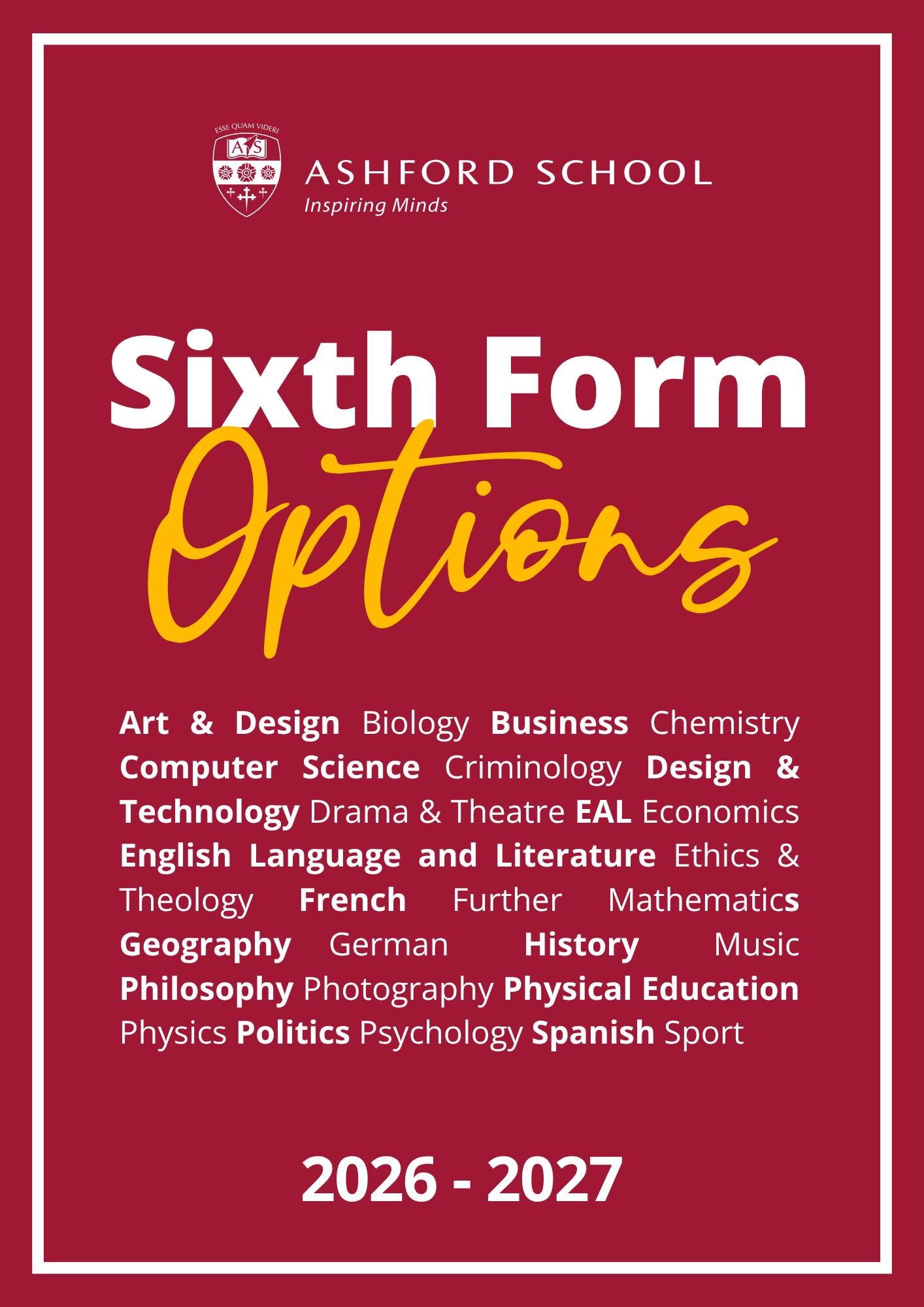

Step into Sixth Form
Life in the Sixth Form is often described as the very best part of the whole school experience. Ashford School Sixth Formers achieve above and beyond what they initially anticipate for themselves. You will leave the school as an aspirational and adaptable individual, confident in your skills and keen to participate in the next stage of your adventure. Our commitment to you is that we will cultivate your personal qualities during your time with us in the Sixth Form and support you as you build your pathway to success in the world beyond school.
Academically, Sixth Formers benefit from a wide choice of subjects, with excellent teaching and resources to assist you through the challenges of Sixth Form study. Most students will study the equivalent of three A Levels; some will do four; and some will follow a more bespoke curriculum. This can include BTEC Sport (Single or Extended), Crest Awards, EPQ and short professional courses.
Our strength lies in our dedication to the individual and what motivates you as a person. There is a myriad of opportunities to enjoy both within the curriculum and in the co-curricular life of the school. We want you to be active participants in the school community and embrace the opportunities for leadership. We want you to invest all you can in your school life because we know that this will help you to discover what really inspires you.
We also seek to expand your perspective, through our personal skills programme, ‘Wider Horizons’. In addition to providing individualised Careers guidance and focused preparation for the world of work, we include sessions which focus on building your personal and social awareness. ‘Wider Horizons’ also features a diverse range of speakers with some recent highlights including Lesley Thomas, a financial guru and advisor; Michelle Mills-Porter, a survivor of the Boxing Day Tsunami, and Alex Holmes OBE who has founded the Anti-Bullying Alliance.
Your life in the Sixth Form promises to be exciting and stimulating, but we recognise that it is a significant, and at times, challenging transition. During the early stages of Year 12, you will participate in an induction programme in order to help you manage the increased expectations. In addition, you will continue to be supported by a pastoral team who are dedicated to encouraging you to thrive and achieve the very best for yourself.
Please do come and share this special experience with us. We are looking forward to welcoming you.
Mrs Hilary Ndongong
Assistant Head (Academic Monitoring & Performance and Sixth Form Lead) NdongongH@ashfordschool.co.uk
The Sixth Form Curriculum
To learn means to be inspired, to be challenged, to take risks and to learn from your mistakes. The Sixth Form curriculum is rigorous and it is designed to provide a mixture of challenge and support, so that you continually extend yourself, becoming better equipped for life beyond Ashford School.
All students are expected to engage with our core curriculum, which includes the following activities:
• Your academic courses (A Levels, BTEC Sport, EAL in preparation for IELTS examinations, short courses)
• Wider academic development (e.g. after school talks, extension clubs, debating, wider reading)
• Physical exercise and sport
• ‘Wider Horizons’ programme
• The School House system
In addition, there are plenty of other opportunities to pursue your passions. These include, but are not limited to, the following.
• Sports teams, Music, Drama, along with a range of other co-curricular activities.
• Formal leadership opportunities (e.g. peer mentoring, Student Parliament, volunteering, prefectship)
• Extended Project Qualification
• Sports Leaders Qualification
All of these opportunities mean that you will have a stimulating and rewarding learning experience.
Choosing your Subjects
At our Sixth Form, you have a wonderful opportunity to study the subjects you enjoy in depth. As you will be spending two years studying your three (or four) subjects, it is important that you choose wisely. We want you to both enjoy and fulfil your potential in your Sixth Form studies. The table below gives some advice about how to choose your subjects.
• I have read about it and it interests me.
• I am passionate about it Allsubjectsrequirehardworkanddedication–ifasubjectinterests you,andyoudemonstrateskillandflairforthesubject,youaremorelikelytobepreparedto putintheeffortrequired.
• I have discussed it with my teachers and they think I am suited to it. Takeadvicefromallof yourrelevantteachers.Theycantellyoumoreaboutthecoursesandgiveyouanhonest assessmentofyourlikelychances.
• It is required for the university courses I am interested in. Thisisalwaysworthchecking beforehand–seenextpage.Butberealistic:checkwithyourteachersaswelltomakesure youaresuitedtothecourse.
• It complements my other subjects Somecombinationsofsubjectsgonaturallytogether,e.g. MathematicsandPhysics,EnglishLiteratureandHistory.Butrememberthatamixof subjectscanalsowork.
• I find it easy.
• I get good grades in it.
• I enjoyed it at GCSE Thesecouldbegoodreasonsbutbecareful–justbecauseyoufounda subjecteasyorenjoyableatGCSEdoesnotnecessarilymeanthesameintheSixthForm. Researchthesubjectscarefullyandknowwhattheywillinvolve.
• My parents think I should do it. Atrickyone:yourparentsknowyouverywell,andyoushould taketheiradviceonboard.Ultimatelythough,youaretheonewhowillhavetodothe subject!
• My friends are doing it Averycommonerror!Putyourselffirst,thereisplentyoftimefor socialisingoutsideoflessons.
• I like the teacher / I think the teacher is good Teachersmaychange,andyoucannotknow whatteachersyouwillhave.AllteachersatAshfordSchoolarehighlyqualified.InSixthForm study,themotivationmustcomefromyou,notfromtheteacher.
• There’s nothing I really want to do, but this is the least bad option. Whatisyourmotivation forcontinuingtostudy?Whatareyourlonger-termaims?Areyousurethisisrightforyou?
The subjects listed in the following pages are those we plan to offer in September 2026 (subject to staffing and viable pupil numbers). Please find out as much as you can about the subjects you are considering and use this booklet as a helpful starting point for your reflections. Please speak to your teachers, or the relevant Heads of Department, for the subjects you are thinking of studying. They will give you good advice based on what they know of you. The “Suggested Entry Requirements” section for each subject indicate our recommendations, based on our knowledge and experience of the courses and of former successful students.
Key Dates
Event
16th October 2025 Sixth Form Information Evening.
November 2025 Year 11 Mock GCSE Examinations
December 2025 Students select preliminary subject choices.
14th January 2026 Year 11 Parents’ Evening.
February Half Term Year 11 Pupils submit their final subject choices.
The step up into Sixth Form study is significant, so it is important that you build on a solid foundation from GCSE study and reflect on the advice offered in these pages and by your teachers. If you have any subject-specific questions, please do contact the relevant Head of Department. The Sixth Form team are also available to offer guidance throughout the coming months so if you have any uncertainties, please do contact Mrs Ndongong, Assistant Head (Academic Monitoring & Performance and Sixth Form Lead) via Mrs Stuart (stuartf@ashfordschool.co.uk). We are here to support you.
Thinking about Pathways
If you are unsure about what to study at university it might be helpful to understand how different subjects at A Level are the start of a journey along a pathway that eventually leads to a job
If you are uncertain about what job you want to do after university, be reassured that your A Levels and the degree you choose to study at University will open many diverse and interesting opportunities for your career
Some of the most popular pathways are illustrated here.
Creative Industries
A Level / Diploma
D&T
Art
Photography
Drama and Theatre
Business Studies
Financial Services
A Level / Diploma
Maths
Further Mathematics
Economics
Business
Computer Science
Media and Marketing
A Level / BTEC
Art and Design
English Language and
Literature
Modern Foreign Languages
Politics
Psychology
Philosophy
Photography
Sciences
Criminology
Economics
Business
Economics
History
Degree
Any creative subject
Opportunities
Product Designer, Video Editor, TV Producer, Drama Therapist, Social Media Content Creator, Brand Strategist, Arts Administrator
Degree Career Opportunities
Any subject with a Mathematical or Statistical module, including Physics and Data Science Accounting, Banking, Insurance, Wealth Management, Investment, Marketing, Systems Design, Operations.
Degree
Being personally active online and playing a role in university media, TV, Radio, Podcasting, YouTube etc, is more important than the subject you study at degree level
However, jobs in Media are highly competitive, and a good degree is also important.
Digital Marketing
Public Relations
Media Sales
Sponsorship Management
Media Management
Science Communicator
Publishing
Advertising Sales
Paid for Advertising Consultant
Science and Medicine
A Level / Diploma
Biology
Chemistry
Physics
Maths
Psychology
Sports Management
University Degree Career Opportunities
Any subject with Chemistry or Biology as the focus. e.g: Chemical Engineering, Biomedical Science
Pharmaceutical industry, NHS management, Research, Food Science, Health, Research and Development, Clinical trials,
A Level / BTEC University Degree Career Opportunities
A Level PE
BTEC Sport
Business Studies
Psychology
Any subject related to Sport, Leisure, Business or Economics. However, being active in University Sport is important.
Law and Legal Services
Coach, Teacher, Personal Trainer, Sports Management, Sponsorship Manager, Social Media Content creation, Sports Marketing, Leisure Management, Policy, Sports Charity, Federations, E-Sports.
A Level / BTEC University Degree Career Opportunities
English Language and
Literature
Modern Foreign Languages
Politics
Psychology
Philosophy
Sciences
Criminology
Economics
Business
Economics
History
Like Media, careers in law depend more on getting a good degree in any subject with practical work experience at a law firm, barristers’ chambers or a citizens advice centre.
Social Care and Health careers pathway
A Level / CTEC
Psychology
Biology
Chemistry
Religious Studies
English Language and Literature
Any subject with Chemistry or Biology as the focus. e.g: Chemical Engineering, Biomedical Science
Most careers in Law requite an additional Law Conversion course’. Specialisms include:
Media and IP
Family Law
Commercial Law
Property Law
Criminal Law
Human Rights
Sport
Technology
Health
Pharmaceutical industry, NHS management, Research, Food Science, Health, Research and Development, Clinical trials,
Beyond Sixth Form
The Head of Higher Education, Dr Wilson, oversees the pathway of all Sixth Form students into life beyond Ashford School.
We firmly believe in supporting the whole of a student’s learning experience. In terms of careers support, we have two primary aims:
1. Ensuring that all pupils are informed about relevant career, higher and further education options available to them.
2. Identifying what pupils enjoy, are good at, and might like to do in the future.
University represents an important route available to all pupils, but due to the dynamic and complex nature of the job market, our support extends to a much wider range of opportunities - including apprenticeships, other employment and gap years. To help Sixth Form pupils explore the options open to them, we organise various activities throughout the year, such as seminars, workshops and trips.
Careers Research
In Year 12, students engage with Unifrog, an online platform that provides information about higher education opportunities (nationally and internationally), as well as advice about different careers with opportunities to participate in virtual work experiences and apply for work placements and internships. It includes a comprehensive suite of personality and skills self-assessments to help refine the individual's profile. This information is then used as a basis for subsequent one-to-one discussions.
One-to-One Support
The Head of HE, Dr Wilson, meets with all Year 12 and 13 pupils individually to discuss their career plans and university options. This support is available throughout the year if pupils or parents want to arrange an appointment at any time.
Application Support
Sixth Form students have talks on topics such as choosing a degree course and university, how to research university choices, the UCAS application process and student finance. In Year 12, the Life Skills Company provides a specialist personal statement workshop and Dr Wilson provides a booklet of resources for career, university, and super-curricular exploration. In Year 13, all pupils participate in ‘Bright Horizons Day’, an opportunity for pupils to concentrate on finalising their intended applications to university and for apprenticeships. One-to-one support continues throughout the application process. As an alumnus of Oxford University, Dr Wilson provides specialist guidance to our Oxbridge candidates, giving tailored advice, support with applications and help with interview preparation to each student
Support is also available for students applying to universities outside the UK, and we have experience with many international destinations, including Hong Kong, Canada, the United States, Australia and the Netherlands. We also help students with applications for apprenticeships and jobs.
External Speakers
Throughout the year, we have a range of external speakers who deliver talks about careers, university degrees and subject areas. Students also have the opportunity to meet some of our alumni and hear about their careers.
University & Careers Fair
The UCAS Discovery Maidstone fair will take place on Tuesday, 2 June 2026 at the Kent Event Centre in Maidstone. This event allows students to meet with university, college, and apprenticeship providers to learn about their options for the future.
Careers Newsletter
We produce a monthly newsletter for Sixth Form pupils and parents, which highlights upcoming university open days and taster events, conferences, summer schools and job opportunities. We also have a careers library with guides to apprenticeships, career options and university choices.
Which Subjects for University?
It is important that you choose a set of subjects that will give you a good foundation for further study and/or your career. There are often stories about so-called ‘soft’ A Levels and secret ‘banned’ lists of subjects that universities do not like. This is generally not true, except for A Level General Studies, which many universities do not accept (and which is not offered at Ashford School). Good universities like to see applications from students who have taken one 'core' A Level needed for the course, plus another good academic subject that complements the first and may or may not be ‘core’ (e.g. Mathematics and Physics, History and English). Universities tend to be less prescriptive about the third (and maybe fourth) subject taken, although the top universities will still require a good grade.
However, please note that for those students looking to study a science degree, many of the top universities would prefer three science/maths A Levels. The most common combinations are Chemistry/Biology/Mathematics for many of the most competitive biological science, biotechnology, medicine and biomedical courses; Mathematics/Further Mathematics/Physics for physical science and engineering degrees (please note that some of the most competitive universities would like to see students with Maths and Further Maths taking four A Levels overall).
Good universities do not like applicants to have studied A Levels that cover common ground (e.g. Geography and Environmental Studies, or Media Studies and Film Studies). They also prefer subject combinations with at least one or two ‘core’ academic subjects. Thus:
• History, English, French – great combination
• History, English, Sociology – good combination
• History, Media Studies, Sociology – OK combination
• Film Studies, Media Studies, Sociology – not a good combination, even if you are applying for a Sociology degree.
The following webpage from the Russell Group of UK universities discusses the benefits of facilitating subjects: www.informedchoices.ac.uk/
It is important to understand the terminology that universities use when they talk about required and recommended A Level subjects:
• ‘Required’ means that a subject is essential – your application will not be considered if you have not taken this A Level.
• ‘Recommended’ means that while the subject is not necessary, you are recommended to take it if at all possible. Having this subject is very likely to help your application.
• ‘May be helpful’ means that having studied this subject might be a help when you start the degree, but not having taken it will not affect your chance of a university place.
Requirements do vary between universities and courses, so you should always check first. These are common degree subjects that have required 'core' A Level(s):
• Medicine/Dentistry/Veterinary Science – Biology or Chemistry, plus at least one other science. Generally, medical school prefer students to have both Chemistry and Biology.
• Engineering – Mathematics and Physics (or Mathematics and Chemistry for Chemical Engineering). Further Mathematics recommended for the top universities.
• Modern Languages – usually require an A Level in the language.
• Sciences – usually require the A Level subject, e.g. Physics for Physics, Chemistry for Chemistry. However, it is possible to do some Biology courses with only Chemistry A Level. For Physics and Chemistry courses, Mathematics is often required or recommended (with Further Mathematics recommended for Physics at the top universities).
Please check the university websites for any courses that interest you or speak to Dr Wilson for advice.
In summary:
• Check the ‘core’ academic subject(s) required/recommended for university courses.
• Complement this with at least one other good academic subject.
• Choose subjects that do not overlap too much.
For more information:
• Look at university websites.
• Speak to Dr Wilson, Head of Higher Education.
• Speak to Mrs Ndongong, Assistant Head (Academic Monitoring & Performance, and Sixth Form Lead).
Art & Design


Why study Art & Design at Ashford School?
In the award-winning Art Department, Sixth Form artists have enjoyed success in National Competitions, recently celebrating three students who were shortlisted in the United Learning International Art Competition. One of our students was selected to be the runner-up and her painting has been displayed in the National Art Centre, Tokyo. Students are taught by highly experienced teachers who are all professional, practising artists with specialisms including painting, ceramics and digital art. Students will benefit from seeing staff work, including our Artist in Residence. Our full-time art technician has previously taught on degree courses and holds a Masters degree in Fine Art, another practising artist and photographer with a passion for all areas including installation art and Photoshop.
Suggested Entry Requirements
The best foundation for success in Art and Design is a Grade 6 minimum in an Art or Design related course with developed drawing skills. However, this does not prevent interested students applying for the course provided they are willing to sit an intensive drawing test. They will also need to supply a portfolio of recent work in a variety of materials.
Overview
The aim of the course is to develop an understanding of the nature of visual thinking and its appropriate language and its potential in 21st century creativity. In Year 12 you will explore a variety of materials in two and three dimensions with three specialist teachers. These include oil, acrylic and watercolour painting, various printmaking techniques, textile mixed media, digital and darkroom photography, sculpture in various materials and scales, and ceramic construction, firing and glazing.
In Year 13 you will build upon the skills that you have learned in Year 12 to research, plan and develop a unit of coursework which will be assessed at the end of the academic year. In this time, you will produce final pieces in at least two of the specialisms explored in Year 12. This is generally a 2D and a 3D piece. You will also produce a Personal Study which is an academic essay of between 1000 and 3000 words based upon your chosen area of study.
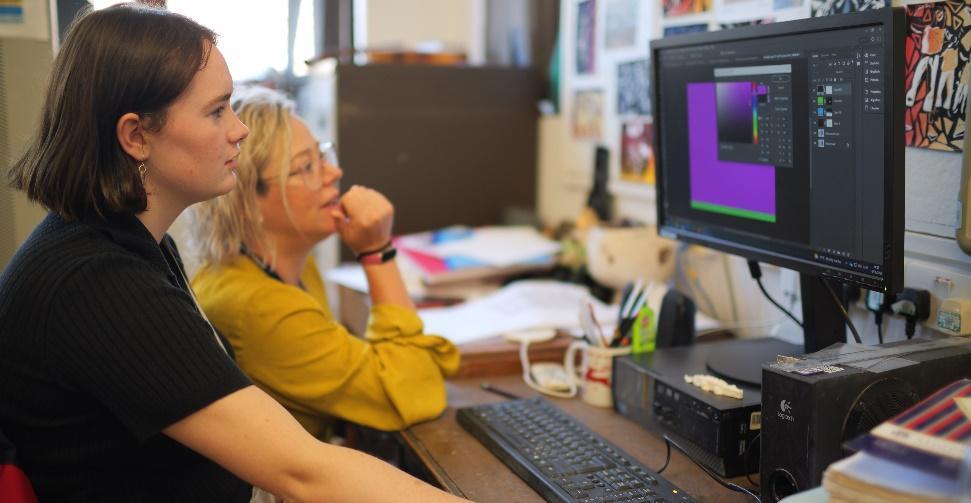
A Level
Assessments
Examinations
One practical examination at the end of the course (15 hrs over 3 days), worth 40% of the A Level.
Coursework
Coursework takes place throughout Year 12 and Year 13 and is worth 60% of the A Level.
During your course you will be advised on how to build a portfolio of artwork suitable for entry to a one-year predegree Foundation Diploma course in Art and Design or a University Degree.
For further information, please contact:
Mrs Rayner Head of Art raynern@ashfordschool.co.uk
The degree courses and careers associated with the Art and Design A Level are substantial and varied. A selected list would include fine art, printmaking, sculpture, architecture, environmental and interior design, art history, animation, games design, alternative media, theatre design, graphic design, textiles, fashion, photography, film and video production, media and advertising, illustration, typography. Students are free to develop their own interests within this course.
AQA A Level Biology 7402
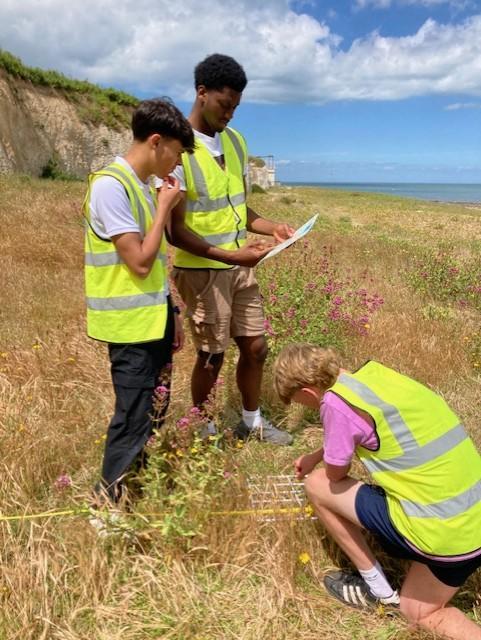
Why study Biology at Ashford School?
At Ashford School, Biology is explored as a fundamental part of all our lives; from Health and Disease to developing revolutionary new drugs and medicines; from feeding the world's growing population to tackling climate change. We showcase our successes through Olympiads and Crest Awards and through residential Field Trips.
A Level Biology will help you make sense of the living world around you. You will study the biology of plants and animals, human health and performance and the wider natural environment. You can progress to study a wide variety of courses at university, from Agriculture to Zoology. For medicine, veterinary science and dentistry, it remains very important.

Suggested Entry Requirements
Grade 7 or higher in GCSE Biology or
Grade 7-7 in GCSE Combined Sciences Dual Award (with high scores in the Biology units).
Owing to the mathematical content of the course, a good understanding of Mathematics is also important: we recommend Grade 7 or above at IGCSE Maths.
Overview
The A Level course is split into eight units, covering the following topics: Biological molecules; Cells; Organisms exchange substances with their environment; Genetic information; variation and relationships between organisms; Energy transfers in and between organisms (A Level only); Organisms respond to changes in their internal and external environments (A Level only); Genetics; populations; evolution and ecosystems (A Level only); The control of gene expression (A Level only).
We run courses throughout the Sixth Form to help extend our pupils. These include the CREST scheme, where we encourage gold level participation, Biology Olympiad, running the science club, a 3-day biology field course, external speakers, and in-house extension work.
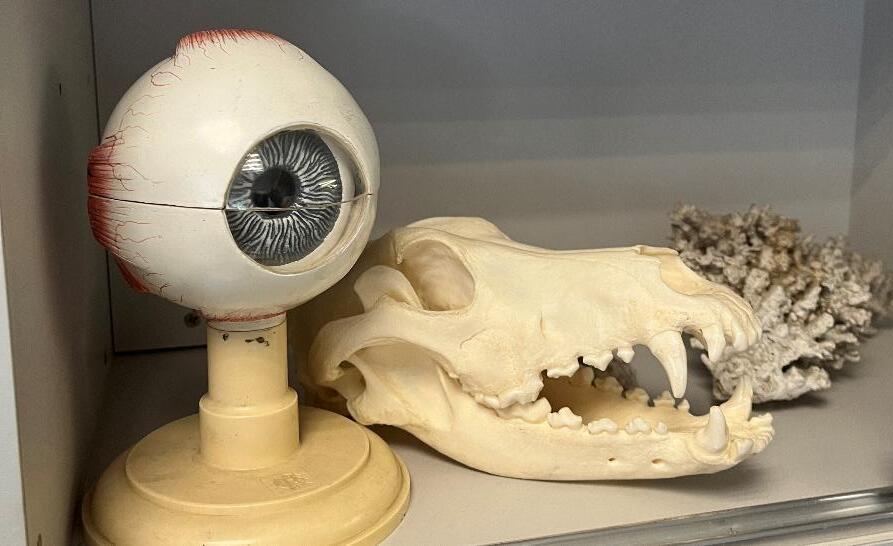
Assessments
Examinations
Three examinations at the end of the course (2 hrs each).
Paper 1 is worth 35% of the A Level. Paper 2 is worth 35% of the A Level. Paper 3 is worth 30% of the A Level.
Practical work lies at the heart of the sciences and this course provides numerous opportunities to use practical experiences to link theory to reality and equip students with essential practical skills. Students who satisfy the practical requirements of the course will be awarded a separate “Practical Endorsement” alongside their A Level Grade.
For further information, please contact:
Mrs Towill
Head
of Biology towills@ashfordschool.co.uk
Beyond A Level
Many of our students go on to study Biology-related courses at university. An increasing number of students each year are successful in obtaining places on highly competitive courses including Medicine, Veterinary Science, Dentistry, Pharmacy, Physiotherapy and a variety of courses at Oxford or Cambridge universities. The following courses are typical of the variety of Biology-related courses taken up by our Biology students: Medicine, Dentistry, Biological Sciences, Microbiology, Sports Science, Radiotherapy, Pharmacy, Physiotherapy, Forensic Science, Neuroscience, Veterinary Science, Biochemistry, Optometry.
Business: A Level

Why study Business at Ashford School?

The Business Department equips students with the core Business skills in finance, marketing, personnel and operations management that they would need to become successful entrepreneurs. Students also have the opportunity to set up and run their very own company within the school.
Business is a subject grounded in the real world and is suited to students who are interested in the workings of business enterprises and the behaviour of people within them. Whilst the subject is good preparation for those making a choice of a career in business, its wide-ranging nature and the intellectual challenge it presents make it an ideal choice for students uncertain about their career choice or looking to complement other subjects.
Suggested Entry Requirements
Assessment is via written external exams containing structured questions relating to a business case study which may contain numerical data for you to interpret. It is important that you are well qualified in both English Language (GCSE Grade 5 or above) and Mathematics (IGCSE Grade 5 or above). GCSE Business Studies provides useful preparation for the A Level course.
Overview
The type of issue and problem that you would face on the course would be very similar to the practical problems faced each day by those running businesses. You will study the problems faced by managers when taking decisions about production, marketing, finance and staffing. In addition, you will take a wider account of the constraints placed on businesses by the economy, government and social matters.
Since the syllabus focuses on practical business situations, you will routinely use real business material based on specific industries such as games consoles, mobile phones and supermarkets. The emphasis is placed on using the skills developed to deal with the problems presented.
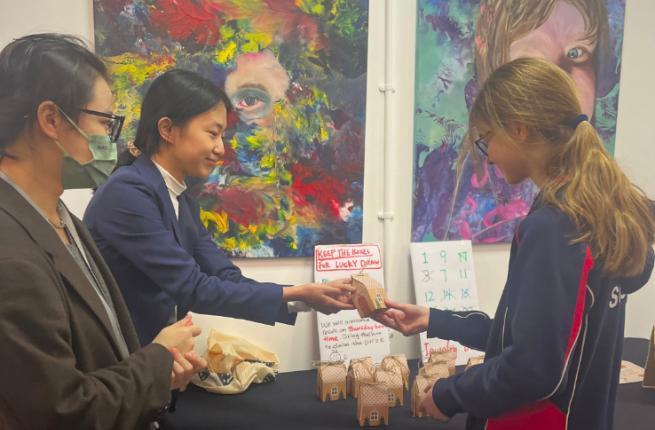
Beyond A Level
Assessments
Examinations
Three examinations at the end of the course (2.25 hrs each), each worth 33.3% of the A Level.
For further information, please contact:
Mr Kendall Head of Business and Economics kendallj@ashfordschool.co.uk
There are many Business courses available at universities, as well as Business courses linked with Accountancy, Computing, Product Design, Languages, Mathematics, Sports Facility Management, Tourism and Psychology amongst many other topics, and a similar diversity can be found linked to Management Studies and Marketing degrees. The skills learnt are both life skills and skills with a particular relevance to anyone participating in the modern marketbased environment. It has been useful to students wanting to enter private practice in Dentistry, Pharmacy, Veterinary Science and Architecture as well as the more obvious careers in Management, Marketing and Retail.
Applied Business
Applied Business Extended Certificate Qualification Level 3
NB:Thissubjectiscurrentlyunderconsiderationasapotential offeringtostudentsinSeptember2026

Why study Applied Business at Ashford School?
This new course provides students with the opportunity to pursue their interest in business within the context of realistic business situations. They will acquire the toolkit of knowledge and skills that would help them to start their own business in later life, or to be successful working as a manager or team leader in a business organisation. As well as gaining an insight into how real firms function and thrive, students will be able to practice and sharpen key workplace proficiencies such as indepth research, team building, statistical analysis, report-writing and oral presentations.
This modular course would suit students who may want to try studying a subject in a different way to a traditional A Level. There are coursework modules, as well as examined modules that can be re-taken. The format rewards students for their planning, organisational, and project management skills, teaching them to be conscientious, determined, and selfmotivated along the way.
Suggested Entry Requirements
Pupils should have at least a Grade 4 in GCSE Maths and English as the Applied Business course requires reasonable numeracy and literacy skills.
Overview
At the heart of the course is the concept of how real businesses operate. You will learn what is required of an entrepreneur to set up and run a successful firm in terms of start-up capital, market research, product development and distribution to the customer base. You will gain an understanding of how external factors such as the law, economy, and technological change affect the performance of a business. The examined and coursework units cover the four key areas that are key to business success: finance, marketing, human relations management and logistics.
The Extended Certificate in Business is a two-year course which is the equivalent of a single A Level. You will be taught some of the business theory in a traditional way to prepare you for the exams. The coursework elements will be based on real business scenarios that your teachers will take you through. You will then be given a coursework task which you will work on independently inside and outside the classroom. Through the task completion you will be expected to demonstrate a range of business skills and knowledge that will be internally and externally graded.
Assessments
Examinations
The course consists of four or five units covering the main functional areas of a business. Two of these units are assessed through an exam, which can be taken and, if necessary, retaken, at certain assessment points within the two-year course.
The remaining topic units are coursework pieces for the students, which are marked internally and then checked by an external moderator.
At the end of the course the students will be awarded a Pass, a Merit or a Distinction. These grades are equivalent to an E, C and A grade at A Level.
For further information, please contact:
Mr Kendall
Head of Business and Economics kendallj@ashfordschool.co.uk
Beyond A Level
This course is a stepping-stone to the study of business at a higher level. This might include a university degree in business management, marketing, finance, human resources or operations management. Alternatively, you could opt for a Higher National Diploma (HND) in business. Apprenticeships in fields such as business administration, digital marketing, finance, or retail.
Career pathways include working as an accountant or events manager, or as a member of a personnel, logistics or marketing team. Alternatively, you might head for employment in the fields of customer relations or digital marketing. We would, of course, love it if you went on to use your entrepreneurial skills and knowledge to set up your very own business.
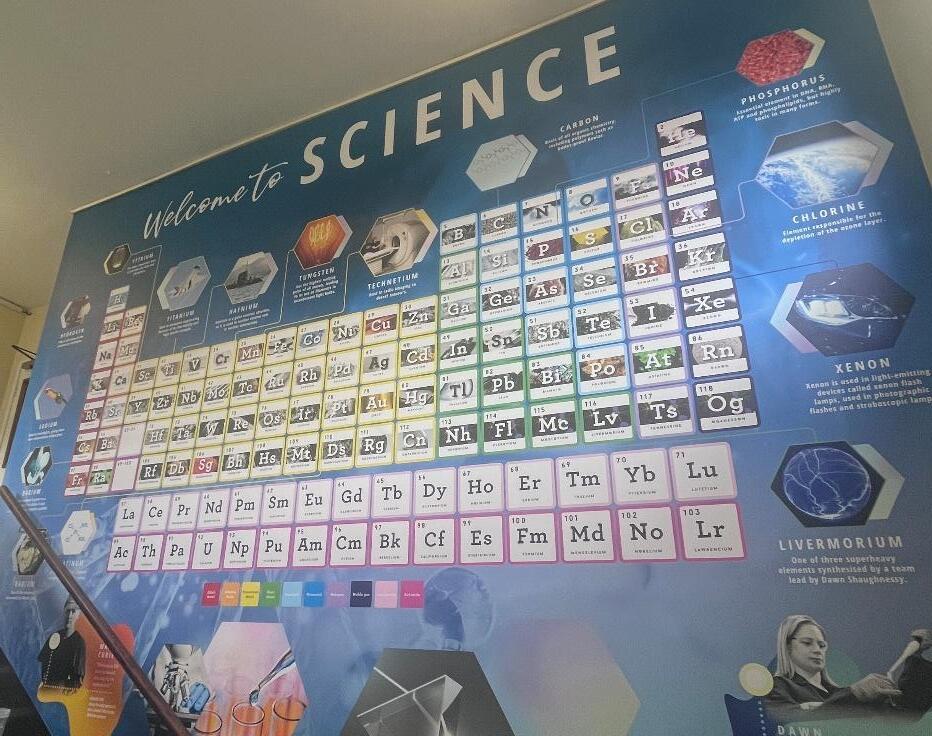
Why study Chemistry at Ashford School?
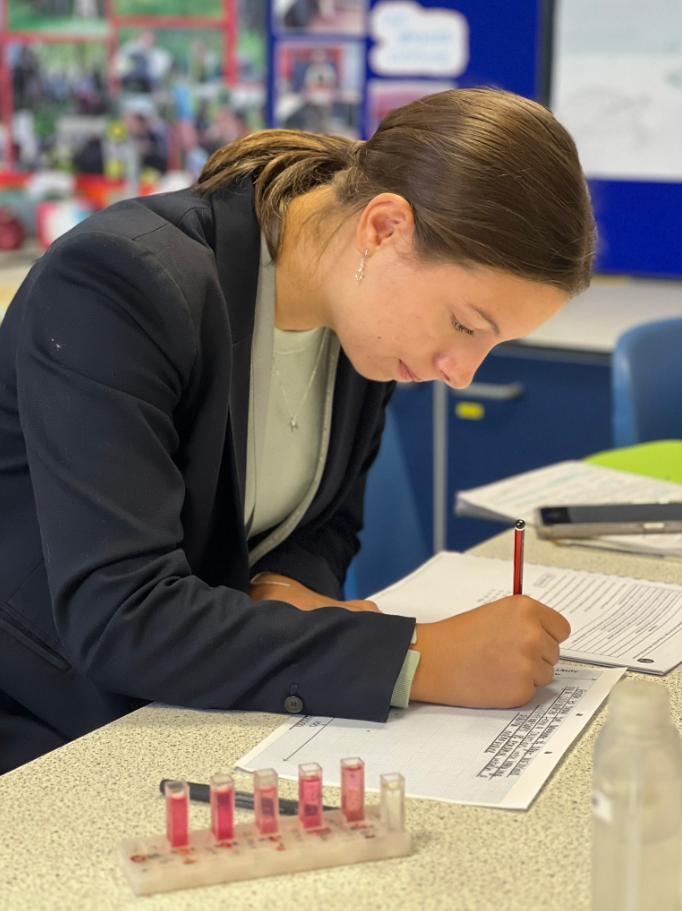
Suggested Entry Requirements
Chemistry is often called 'the central science' because it connects the physical sciences, including Physics, with the life sciences and applied sciences, such as medicine and engineering. As well as knowledge of the chemical content itself, the subject develops many important cognitive skills, such as understanding abstract concepts, analysing data, problem identification and solving, numerical analysis, organising recall, and logical argument, as well as the skills of critical thinking.
Chemistry is a 'facilitating subject', as it is one of the subjects appearing most often in university entry requirements. Chemistry can be taken with any combination of subjects but there are particular benefits to studying Mathematics and Physics or Biology alongside Chemistry. These subjects complement each other and studying one can reinforce ideas central to the others.
Grade 7 or higher in GCSE Chemistry or Grade 7-7 in GCSE Combined Sciences Dual Award (with high scores in the Chemistry units). Owing to the mathematical content of the course, a good understanding of Mathematics is also important: we recommend Grade 7 or above at IGCSE.
Overview
The A Level Chemistry course is fairly evenly divided between the study of physical chemistry, inorganic chemistry and organic chemistry. The course is upto-date and includes units on modern analytical techniques and topical issues in Chemistry such as polymer production and disposal, alternative energies, and biochemistry.
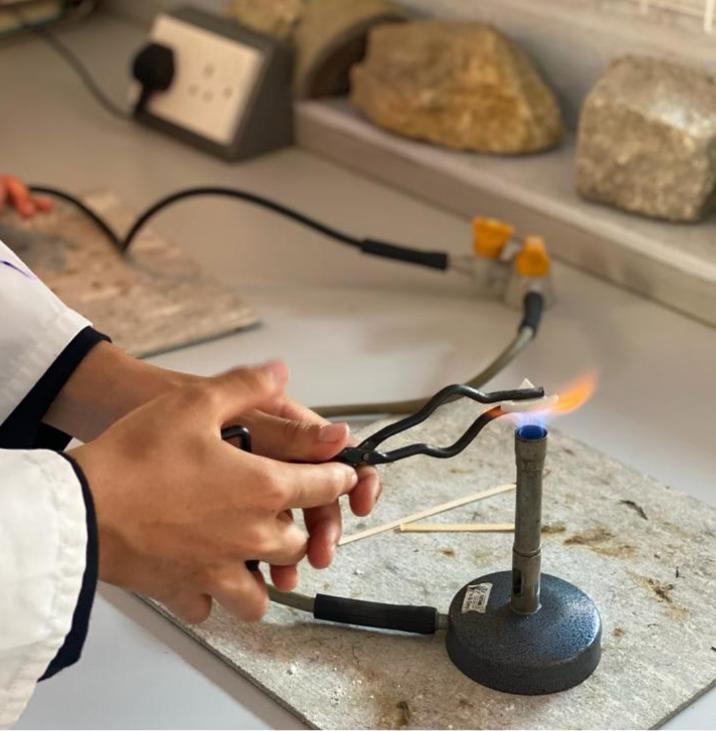
Beyond A Level
Assessments
Examinations
Three examinations at the end of the course (2 hrs each).
Paper 1 is worth 35% of the A Level. Paper 2 is worth 35% of the A Level. Paper 3 is worth 30% of the A Level.
Practical work lies at the heart of the sciences and this course provides numerous opportunities to use practical experiences to link theory to reality and equip students with essential practical skills. Students who satisfy the practical requirements of the course will be awarded a separate “Practical Endorsement” alongside their A Level grade.
For further information, please contact:
Dr Hiatt-Gipson Head of Chemistry hiattgipsong@ashfordschool.co.uk
A Level Chemistry is a necessary qualification for a number of higher education courses. The most noteworthy are Medicine and medically related subjects. It is an essential qualification for Natural Sciences at Cambridge and for some Engineering courses. It is highly desirable for biological courses.
Chemistry would be the best qualification for the chemical industry, pharmaceuticals and many manufacturing industries. Graduates with a Chemistry degree are highly regarded due to the wide range of skills acquired and many will go into areas such as business and finance.
Computer Science
OCR A Level Computer Science H446
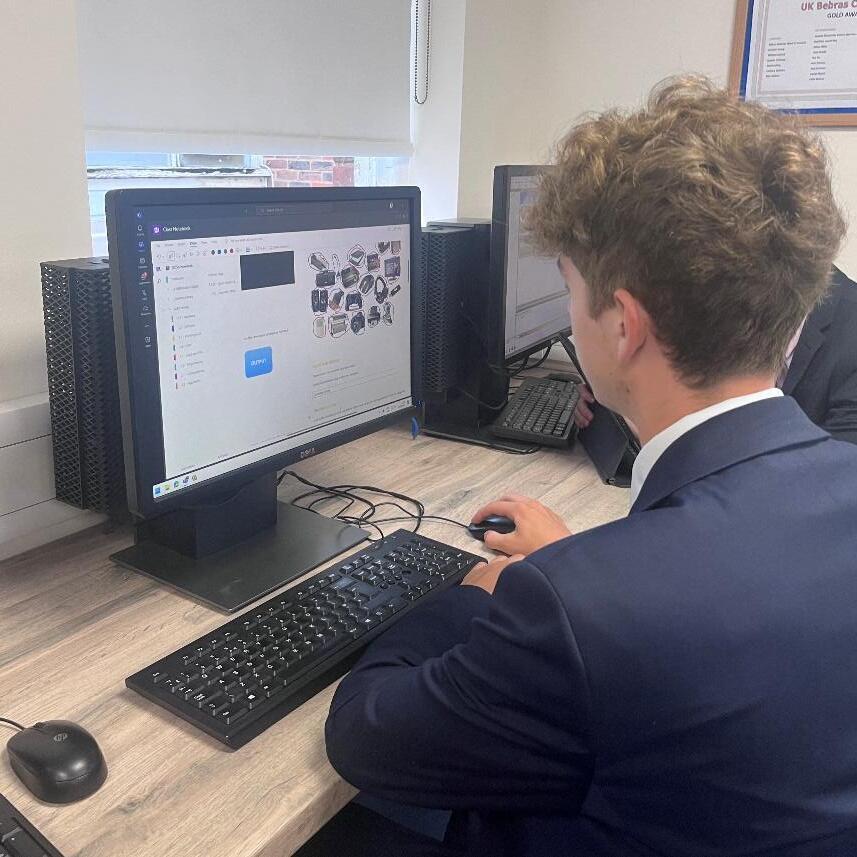
Why study Computer Science at Ashford School?

Computer scientists are vital to the digital age we all now live in; from the apps we use to do our shopping to the technology taking humans into space, computers underpin everything we do. A scientific understanding of how computers work and how to create software using written programming languages is key to this and they are at the core of Computer Science A Level. Computer Science also teaches you how to solve complex, challenging problems – a vital skill whatever direction your career path leads you.
A wide variety of degrees and jobs are open to those who study Computer Science. Whether you’re looking at making a positive difference in the world by going into medical research or are looking to create the next hit computer game, jobs related to Computer Science are amongst the most lucrative and are definitely here to stay.
Suggested Entry Requirements
Grade 6 in GCSE Computer Science. Those who did not have the opportunity to study Computer Science at GCSE will be considered if they have an A Grade/ Grade 7 in Mathematics and/or a clear interest in the subject (particularly those who already have programming experience).
Overview
The course is divided into two examined units and one piece of controlled assessment:
Unit 1: Computing Principles – Covers the theory underlying Computer Science including components of a computer and their uses, types of software and the methodologies used to develop them, how data is exchanged between systems, how data is represented and stored, and the legal, moral cultural and ethical issues surrounding computer use.
Unit 2: Algorithms and Programs – Covers the theory behind writing computer programs including computational thinking, problem solving, practical programming skills and algorithms.
Unit 3: Programming Project – You are given the opportunity to create a piece of software for a user of your own choosing. Commonly these are apps or games which you develop in consultation with your user, mimicking the real-world software development process (analysing the problem, designing the program, creating the program and evaluating what you have made).
Assessments
Examinations
Two examinations at the end of the course (2.5 hrs each), each worth 40% of the A Level.
Coursework
Coursework is worth 20% of the A Level.
Computer Science A level pairs well with other technical subjects such as Mathematics, Physics and Chemistry.
For further information, please contact:
Miss
Thompson
Head of Computer Science thompsonc@ashfordschool.co.uk
Beyond A Level
Computer Science students go on to study a wide variety of degree subjects. Some will continue with their theoretical studies by continuing on to a Computer Science course whereas others will decide to specialise and go into a specific field of interest (software engineering, mobile technology, digital media, game development, cyber security, web development, artificial intelligence, animation and effects, computer forensics, networking).
Computer Science is also considered by top universities to be a useful subject for gaining a place on a wide variety of scientific and technical degree courses (all types of Engineering, Biology, Chemistry, Physics, Mathematics, Economics, Medicine, Psychology, Sociology).
Criminology
WJEC Level 3 Applied Certificate in Criminology
NB:Thissubjectiscurrentlyunderconsiderationasapotential offeringtostudentsinSeptember2026



Why study Criminology at Ashford School?
What crimes exist in our society? What prevents a victim from coming forward? Why do we turn a ‘blind eye’ to some crimes? Who decides what behaviours should be against the law? If you find these questions stimulating, then Criminology may be the perfect subject to take at A Level.
Criminology appeals to pupils who possess a keen interest in understanding the causes, consequences and complexities of crime and the workings of the criminal justice system. Students who are inquisitive about human behaviour and motivated to explore the interplay between law, psychology and society will find this subject both engaging and rewarding.
Suggested Entry Requirements
A genuine enthusiasm for the course content and a pass at grade 4 in both GCSE English Language and GCSE Mathematics
Overview
The course explores different theories about why people commit crimes and considers the social construction of criminality before examining the relationship between criminology theories and public policy. It reflects on the roles and aims of punishment and examines different models of criminal justice.
Students will also analyse how crime is reported in the media and how the media can influence public perception. Students will study real life ‘Awareness Campaigns’ and learn how to plan and deliver an effective campaign.
There will be opportunities to scrutinise genuine legal cases in order to deepen the student’s understanding of the process of criminal investigations, the use of evidence in court, and the prosecution and appeals process in the UK.
The course would also benefit those who aspire to develop strong analytical, evaluative and communication skills and who would enjoy independent research and thoughtful discussion of real-world issues.
Assessments
Examinations
The Level 3 Applied Diploma in Criminology is equivalent to one A Level and consists of four mandatory units.
Examinations: (External assessment 50%)
Criminology Theories
Crime and Punishment
Coursework
Coursework: (Internal assessment 50%)
Changing Awareness of Crime
Crime Scene to Courtroom
For further information, please contact:
Mrs Ndongong
Assistant Head (Academic Performance & Sixth Form Lead) ndongdongh@ashfordschool.co.uk
Beyond A Level
This is an Applied General qualification and is designed to support learners who wish to progress into higher level apprenticeships or progress to university. Studying Criminology could lead into a variety of career pathways within the criminal justice system including investigative and criminal analyst careers, social and probation work, and careers within the police force. It could also provide a useful complement for students who have an interest in Law, Psychology, Sociology, Forensic Science, Data Analysis, Public Policy, Community Safety, Victim Support and Rehabilitation Services.
Design and Technology

Why study Design and Technology at Ashford School?

Suggested Entry Requirements
The Design and Technology A Level builds on the experience of GCSE and allows students to further their studies through Product Design. We will investigate historical, social, cultural, environmental and economic influences on design and technology, whilst enjoying opportunities to put the learning into practice by producing artefacts. Students will gain a real understanding of what it means to be a designer, alongside the knowledge and skills sought by higher education and employers, especially those in the creative industries. The course is closely linked to the real world of product/system manufacture whilst offering opportunities to acquire and demonstrate knowledge and understanding of the world of designing and making. Students will develop an awareness of the responsibilities that designers and technologists have and the potential that exists to change and shape lives.
Ideally students should have studied Design and Technology at GCSE but this is not necessarily essential. Information Technology skills and an interest in working practically with materials and a creative mind are deemed essential. At least a grade 6 in Maths GCSE is vital as students are expected to demonstrate their application of knowledge, understanding and skills of Maths (and Science) both theoretically and practically.
Overview
There are clear links between aspects of the specification content and other subject areas such as Computer Science (‘The use of computer systems’ and ‘Digital design and manufacture’); Business Studies (‘Enterprise and marketing in the development of products’); Art and Design (‘Design communication’) and History (‘Design Theory’). Students must also demonstrate maths and science skills through their written papers and their nonexam assessment. This is not an exhaustive list, and there are other opportunities within the specification for students to integrate and apply their wider learning and understanding from other subject areas studied during Key Stage 4, as well as those subjects that they are studying alongside A Level Design and Technology.

Beyond A Level
Assessments
Examinations
Two examinations at the end of Year 12.
Paper 1 (Technical Principles) is worth 30% of the A Level (2.5 hrs).
Paper 2 (Designing and Making Principles) is worth 20% of the A Level (1.5 hrs)
Coursework
A major project on a design context during Year 13 (50 hrs), worth 50% of the A Level.
For further information, please contact:
Miss Playford
Head of Design and Technology playforda@ashfordschool.co.uk
This creative and thought-provoking qualification gives students the practical skills, theoretical knowledge and confidence to succeed in many careers, especially those in the creative industries. Whether students continue their study with a degree course in Design or broaden their skills in either the Arts or Sciences, A Level Design and Technology offers a sound base for future learning. There are many, excellent career opportunities for students leaving with an A Level in Design and Technology, as they will have sound problemsolving skills and practical ability. Career options include: Engineering; Interior, Product, Industrial, Civil, Environmental or Fashion Design; Architecture; Graphic and Visual Design; Sports Equipment Design; Communication, Media, Marketing or Animation; Manufacturing or the Textiles Industry.
Drama and Theatre
OCR A Level Drama and Theatre H459

Why study Drama and Theatre at Ashford School?

Suggested Entry Requirements
It is a hugely creative area of study that gives you the opportunity to create original performance material, as an actor, designer and director, as well as exploring established plays for modern audiences. There are plenty of live theatre trips, as well as workshops with visiting practitioners, residential tours, open days at the country's top drama schools, and a wealth of performance opportunities throughout the course to give you insight into the wider entertainment industry.
The study of Drama and Theatre is an exploration of our artistic heritage and the culture of other societies. Your communication skills as a performer, designer, director and critic will be challenged and enhanced, through the exploration of the work of famous playwrights both in performance and as a script, which you must bring to life
Drama is a transformational subject that nurtures:
• Confidence
• Creative Thinking
• Problem-solving
• Collaboration and Teamwork
• Critical Analysis
• Empathy and Emotional Intelligence:
• Resilience and Self-Reflection
Grade 6 in English Literature GCSE and Grade 6 in Drama GCSE (if taken). This subject calls for a commitment to teamwork, group participation and a lively interest in all aspects of theatre. It should be remembered that, while you will be graded individually, there is an inevitable effect on others' work, given the practical nature of the performance elements.
Overview
You will take part in four units across the A Level.
Unit 1: Practitioners in Practice
You will study various practitioners and write a 2000word research report. You will also devise your own practical performance and will be examined in front of a live audience. A portfolio of your journey, which can be a piece of continuous prose, a portfolio or a video diary must also be submitted.
Unit 2: Exploring and Performing Texts
You are required to study one performance text in its entirety and work collaboratively to perform part of the text. You will need to show an understanding of characterisation, performance skills and directorial intention. Examination is via visiting assessor in front of a live audience.
Unit 3: Analysing Performance (A and B)
Section A includes the study of two set texts which explore the theme of Conflict. In Section B, you are required to analyse and evaluate a live theatre performance.
Unit 4: Deconstructing Texts for Performance
Taking one set text, the exam questions you on how scenes can be staged and performed for an audience. It demands understanding the text in depth.
Beyond A Level
Assessments
Two units are practical examinations, two are written examinations.
Written Examinations
Two examinations at the end of Year 13.
Paper 1 is worth 20% of the A Level (2.25 hrs).
Paper 2 is worth 20% of the A Level (1.75 hrs).
Practical Examinations
Two practical examinations with coursework, one at the end of Year 12 worth 40% of the A Level, and another at the end of Year 13, worth 20% of the A Level.
For further information, please contact:
Mr Andrews Head of Drama andrewsa@ashfordschool.co.uk
Drama and Theatre A Level is valued by degree courses in the Arts, Law, English, Humanities, Sociology, Psychology and Modern Languages.
Employers look for people skilled in communication, teamwork, negotiation and persuasiveness Careers which are open to Drama and Theatre students include management, personnel, teaching, social work, marketing, project management and jobs requiring teamwork, advanced analytical skills, quick thinking, self-reliance, creativity and the ability to organise both yourself and others under pressure

Why study Economics at Ashford School?
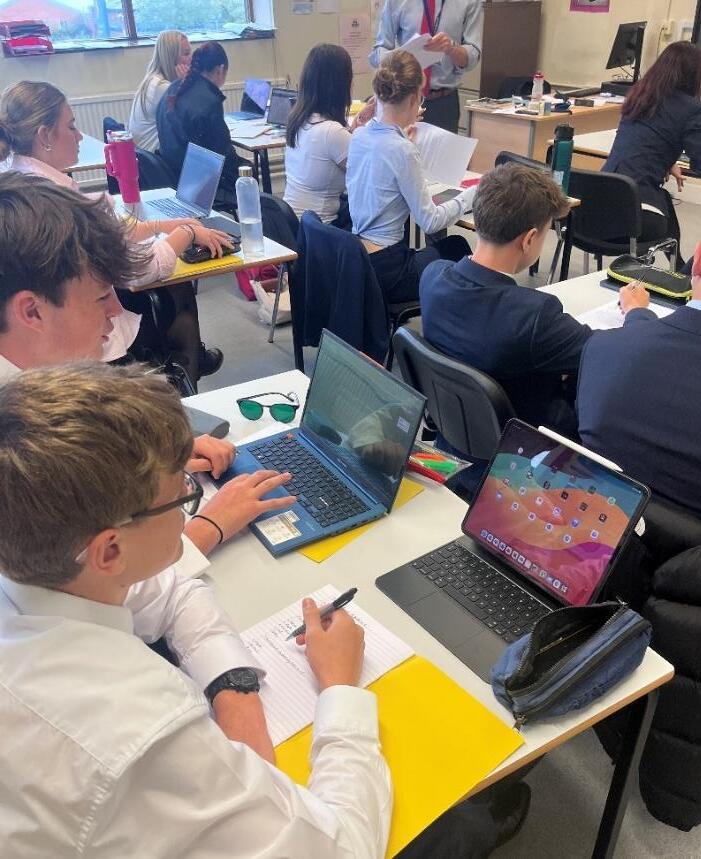
The Economics Department offers students the opportunity to acquire the economic theory that they need to understand the forces that shape so much of the world around us. For most this is a brand-new subject, which many choose to study at university. You will study some of the essential elements of how a society works; the creation of wealth and its subsequent distribution, both within an economy and on a global scale. The subject will offer insights into individual psychology, group reactions to certain economic situations, and the responses of organisations.
As a social science subject, Economics attracts students who are studying both mainly arts and mainly science A Levels. It is of value to students looking to broaden their curriculum, and to any student wishing to further their understanding of the world.
Suggested Entry Requirements
Assessment is via essays and structured questions relating to stimulus material which can contain text and/or numerical data. It is therefore essential that you are well qualified in both English (GCSE Grade 7 or higher) and Mathematics (IGCSE Grade 6 or higher). Although not compulsory, GCSE Business Studies may provide useful preparation for the A Level Economics course.
Overview
The broad topics studied are:
• Markets and market failure
• National and international economics
• Economic principles and issues
The skills you should acquire will be transferable to all aspects of learning. You will understand and analyse data, think critically about issues and make informed decisions. You will learn to look at both quantitative and qualitative information when making decisions. The subject offers many opportunities for discussion, and your views will always form a valued basis for gaining a clearer understanding of the issues involved. You will deal with issues as far ranging as extreme poverty in the world and the possible consequences of the UK’s decision to leave the European Union.
Assessments
Examinations
Three examinations at the end of the course (2 hrs each), each worth 33.3% of the A Level.
For further information, please contact:
Mr Kendall Head of Business and Economics kendallj@ashfordschool.co.uk
Beyond
A Level
Economics is a long-established degree subject at all universities. It can be taken as a single honours subject or combined with other subjects in a joint honours course. Courses range from the highly mathematical Econometrics to courses which incorporate more of a social science approach. It is a subject often taught as an element of other social science courses; it may also be part of an Engineering degree.
Economics is not always specified as a requirement for a degree course, but we highly recommend that students study the subject at A Level before studying at degree level. Career opportunities for students with an Economics degree are many and varied within business, the Civil Service, journalism, education, and other areas. Economists hold high profile jobs in the City and in major corporations, where their skills are highly rewarded. A recent review of graduate salaries indicated high earnings potential for graduates with an Economics degree.
English Language and Literature
Edexcel A Level English Language and Literature 9ELO
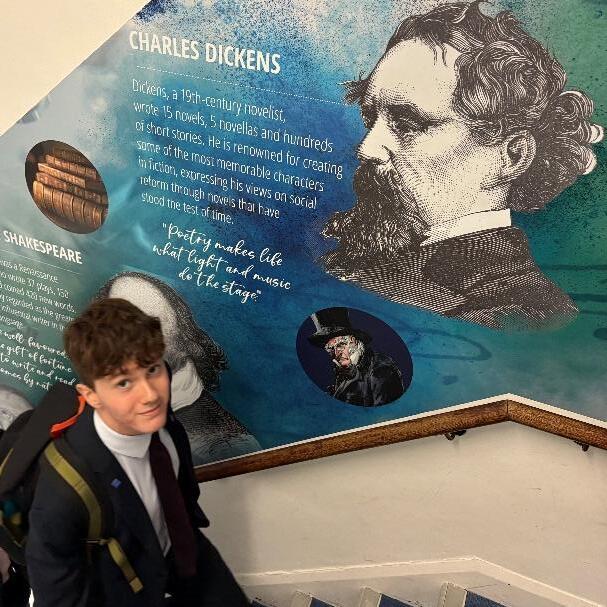
Why study English Language & Literature at Ashford School?
Studying English Language and Literature is a fantastic option for those who have enjoyed both aspects at GCSE. This two-year course will equip you with the ability to engage critically with a wide range of texts, develop your skills as producers and interpreters of language, as well as using linguistic and literary approaches in your reading and interpretation of texts. The course is perfect if you enjoy not only the creative aspects of the written word, but also if you’re interested in how literature and language reflect society.
You will explore how ‘voice’ is crafted in both speech and writing, focusing on a drama text, and a range of short literary, nonliterary and digital texts. You will also study texts to examine the ways in which writers use language techniques and literary devices to convey their ideas on a theme such as ‘Society and the Individual’. There will be opportunities to develop your own skills as a writer, of both fiction and non-fiction texts.
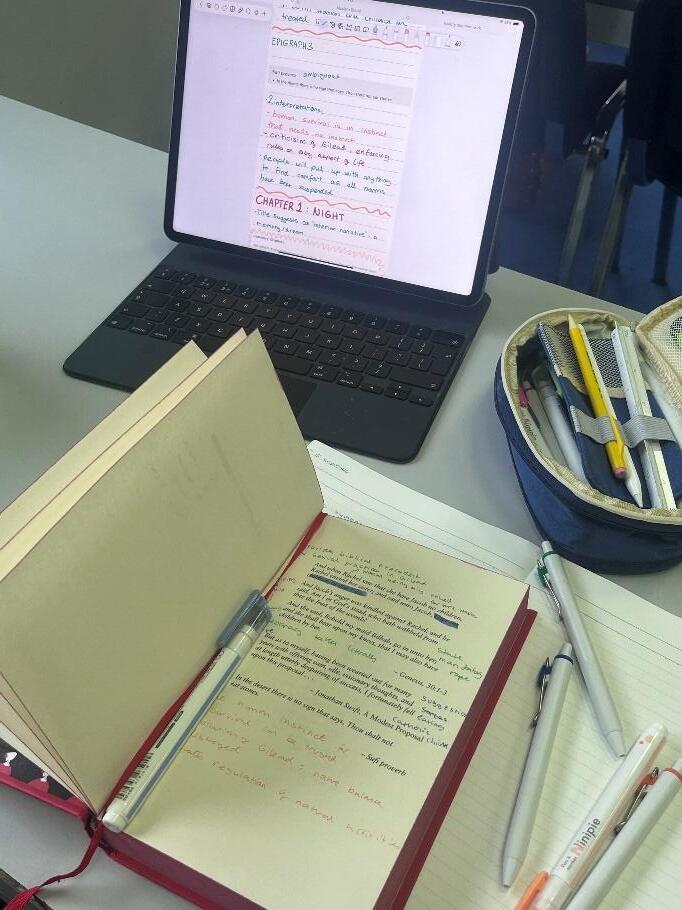
Suggested Entry Requirements
Grade 6 or higher in both English Language and English Literature at GCSE.
Overview
Component 1: Voices in Speech and Writing
Section A: Voices in 20th and 21st century Texts
• One comparative essay question on one unseen extract selected from 20th - or 21st century sources and one text from the anthology.
Section B: Drama Texts
• One extract-based essay question on the chosen drama text such as AStreetcarNamed Desire,Tennessee Williams or Translations , Brian Friel.
Component 2: Varieties in Language and Literature
Section A: Unseen Prose Non-fiction Texts
• One essay question on an unseen prose nonfiction extract from a choice of four. The unseen extract is linked to the studied theme e.g. Love and Loss
Section B: Prose Fiction and Other Genres One
• Comparative essay question from a choice of four on one prose fiction anchor text and one other text from a theme e.g. TheGreat Gatsby , F Scott Fitzgerald, TheBonePeople, Keri Hulme, WutheringHeights , Emily Brontë, or a Shakespeare text such as Othello,Twelfth NightorHamlet .
Component 3: Non-exam assessment
• Two written assignments.
Beyond
A Level
Assessments
Examinations
Two examinations at the end of the course (2.5 hrs each), each worth 40% of the A Level.
Coursework
Assignment 1: two pieces of original writing; one piece of fiction writing and one piece of creative non-fiction writing
Assignment 2: one analytical commentary reflecting on their studied texts and the two original writing pieces they have produced. (Coursework totalling 20% of the A Level).
The advisory total word count is 2500–3250: 1500–2000 words for the original writing pieces and 1000–1250 for the commentary.
For further information, please contact:
Ms Russell
Head of English Faculty (Maternity) russellj@ashfordschool.co.uk
A Level English cultivates skills in communications, critical analysis, opening diverse career and post-university pathways. The study of literature and language hones written communication skills that enable clear, persuasive expression of ideas in writing and speech.
This is invaluable for careers in journalism, public relations, and corporate communications, where crafting compelling narratives is key. At university, English A Level prepares students for degrees in media, law, or politics, where articulate, well-structured expression of ideas, results and processes are essential.
Geography

Why study Geography at Ashford School?
Geography is a fascinating subject on its own or as part of a combined Humanities selection. As our awareness of the world around us grows and our environment changes, Geography supplies the information, enthusiasm and challenge to students looking to discover a subject tackling real issues. The issues such as controlling Europe’s migration dilemma to an understanding of how to manage natural hazards. Geography develops the skills of analysis of data, investigation, comprehensive writing and decision making, alongside interpersonal skills such as collecting data in teams or debating issues.
Geography at Ashford School helps you prepare for future study and employment; from developing the skills needed to complete independent research through the completion of the NEA to developing analytical skills. Geography is a great facilitating subject due to its breadth; we help to develop your written language through building arguments and strengthen maths skills with our use of GIS and statistical testing. The range of topics covered make it a relevant and great for career progression in areas such as sustainability, energy supply, urban regeneration, human rights, climate change and hazard management.

Suggested Entry Requirements
To undertake A Level it is strongly advisable that you have studied Geography at GCSE. You should have a good standard of written English (GCSE English Grade 5 or above) and GCSE Geographers should have achieved at least a Grade 6. A genuine interest and curiosity in physical global processes, landscape formation, the environment and current affairs surrounding globalisation and population pressure on urban areas would be most helpful.
Overview
The A Level is a linear course spanning two years. It looks at a range of contemporary topics and issues that are assessed in two exam papers, Physical Geography and Human Geography.
The areas of study for Physical Geography include the water and carbon cycles, along with associated issues and threats such as flooding, deforestation, and the impact of climate change; coastal systems, processes, landforms, the issue of coastal zone management; and the nature, impact and management of various natural hazards (volcanic, seismic, tropical storms and wildfires).
The areas of study for Human Geography are global systems and governance (globalisation); Changing Places with a focus on distinguishing between clearly contrasting local and distant places (endogenous and exogenous factors); contemporary urban environments and the issues surrounding sustainable urban living.

A Level
Assessments
Examinations
Two examinations at the end of the course (2.5 hrs each), each worth 40% of the A Level.
Coursework
Coursework consists of one report (3000-4000 words) and is worth 20% of the A Level. You are required to undertake an independent geographical investigation that includes fieldwork and the collection of data to answer a key question or hypothesis defined by the candidate in relation to the course specification.
For further information, please contact:
Mrs Craddock Head of Geography craddockr@ashfordschool.co.uk
Geography is a useful A Level when applying for a wide range of university courses as it acts as a natural bridge between humanities and sciences. At university students of Geography may continue with a closely related degree (Geography, Environmental Geography, Geology, Urban Management and Planning, Meteorology, etc.) or other associated degrees (Leisure and Tourism, Business, etc.). A Geography degree can lead to a variety of occupations in industry, business and law firms and in applied disciplines such as urban planning, meteorology, and environmental protection.
OCR A Level History H505
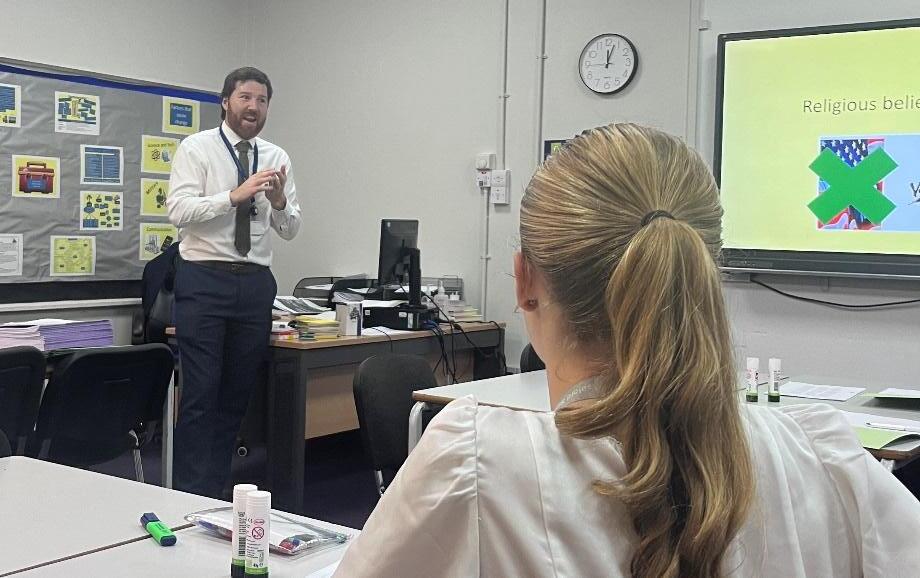
Why study History at Ashford School?
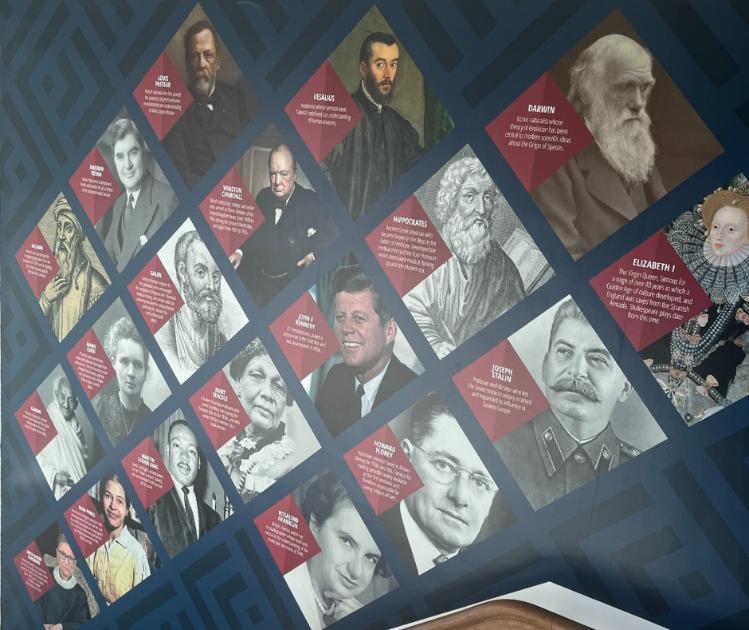
History at Ashford School is international in scope and spans the political, military, social and cultural spheres. The topics of the Crusades, the Early Modern European Witchcraze, Modern Britain and the Cold War are selected for their overlapping themes which are highly relevant to understanding current affairs. As a result, students leave school with insight and humanity; they are well-equipped with the necessary knowledge and understanding to embark on their next steps, and to enter adult life as active and engaged citizens.
Studying History in the Sixth Form will allow to explore your own ideas and reach your own conclusions. We will teach you how to think, rather than tell you what to think and, where possible, classes will take the form of seminar-style discussions in which debate is encouraged. To do this effectively, you will need to learn how to analyse and evaluate, and how to construct clear and rational arguments to defend your point of view. Successful students are those who can read critically and write convincingly, and these skills are given forensic focus during the A Level years, with whole lessons frequently given over to identifying and applying high-order skills. This focus on written skills is, in turn, excellent preparation for a wide range of degree courses.
Suggested Entry Requirements
To be able to access the A Level curriculum comfortably you should have a Grade 7 or above in History. Students with a Grade 6 at GCSE should talk to us ahead of embarking on the course and we will be able to advise on its suitability, and on the required levels of commitment to ensure success. It is not strictly a requirement to have taken History at GCSE; please do speak to a History teacher if you are considering this option.
Overview
The A Level course spans Medieval, Early Modern and Modern History. The aim of the units is to develop specific history-related skills such as source analysis and interpretation, critical thinking, targeted reading, research and extended writing, whilst allowing parallels and patterns to emerge by studying human social, economic and political behaviour in a variety of contexts. The course has been designed to balance political, social, modern and earlier History:
• Unit 1: British period study and enquiryBritain 1930-1997 (Year 12).
• Unit 2: non-British period study – the Crusades, 1095-1192 (Year 12).
• Unit 3: Thematic study and historical interpretations – Popular Culture and the Witchcraze of the 16th and 17th centuries (Year 13).
• Unit 4: Coursework: The Cold War (Year 13).
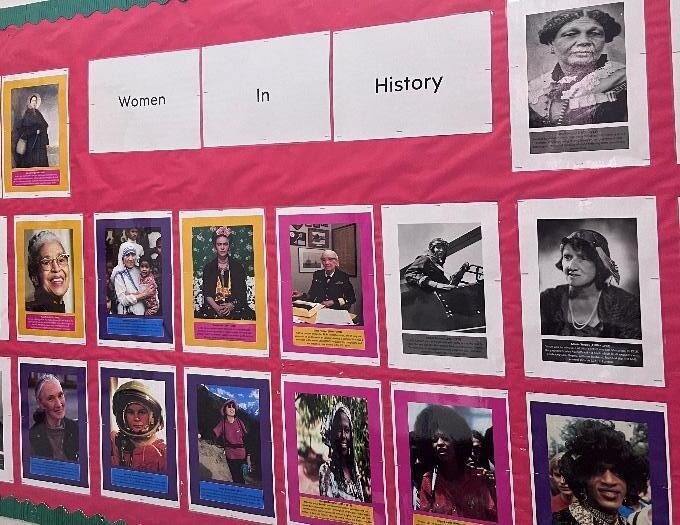
Beyond A Level
Assessments
Examinations
Three examinations at the end of the course.
Unit 1 is worth 25% of the A Level (1 5 hrs). Unit 2 is worth 15% of the A Level (1 hr). Unit 3 is worth 40% of the A Level (2.5 hrs).
Coursework
Unit 4 is worth 20% of the A Level.
For further information, please contact:
Dr
Quinton
Head of Humanities Faculty quintone@ashfordschool.co.uk
History quite rightly retains its high status among universities and employers as a rigorous intellectual discipline that trains the mind. Well-educated historians can think clearly, can prioritise, and can argue concisely and convincingly about complex problems - sought after qualities in most fields. A good grade in History will be taken as a mark of an applicant's general intellectual ability, and a capacity for hard work.
In the wider world lawyers, journalists, writers, management consultants, politicians - indeed anyone who needs to be able to present a point of viewwill benefit from the skills learnt through studying History.
Mathematics and Further Mathematics
Edexcel A Level Mathematics 9MA0
Edexcel A Level Further Mathematics 9FM0
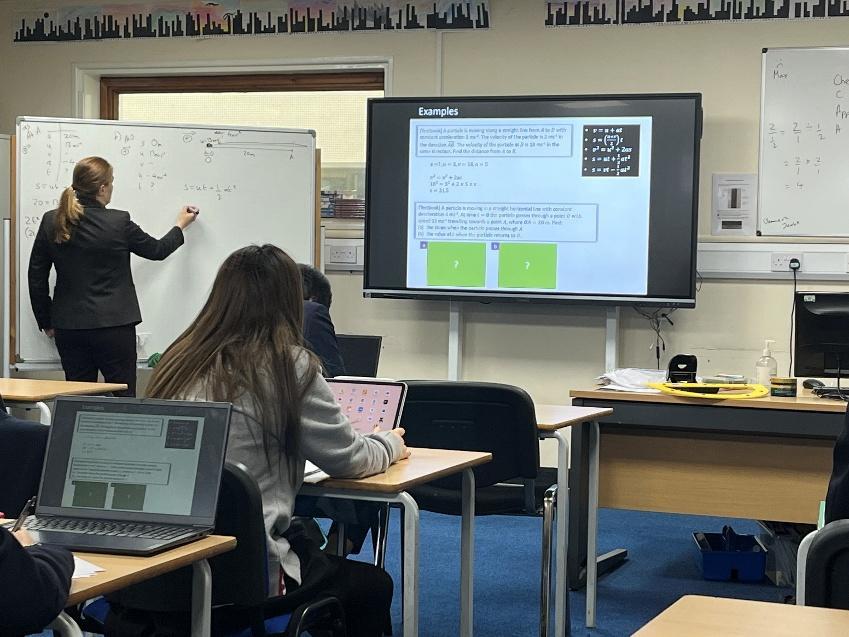
Why study Mathematics at Ashford School?
Mathematics is one of the oldest subjects studied by mankind, yet there are more mathematicians alive today than in the rest of history put together. It is a challenging, beautiful and practical subject, which plays an essential part in our society. You may be considering a career for which Mathematics is needed or for which it may be useful. The good news is that even if you do not know what you wish to do at the moment, Mathematics fits well with both arts and science subjects and is very highly regarded by higher education institutions and employers.
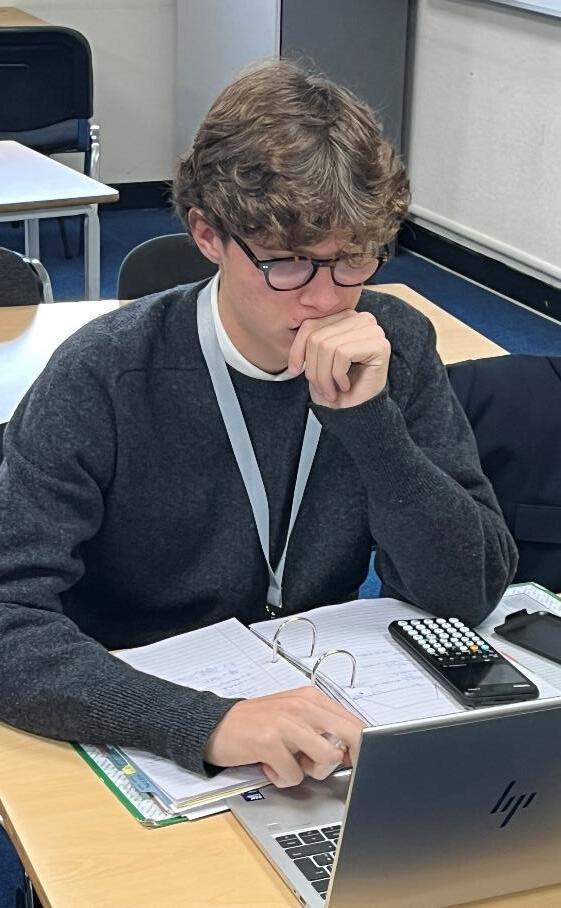
Suggested Entry Requirements
The step up from GCSE to A Level Mathematics can be daunting. In order to access the A Level material, it is important to work to a minimum IGCSE/GCSE Grade 7 for Mathematics, and 8/9 for Further Mathematics. In particular, fluency with (and enjoyment of) the harder GCSE level Algebra is important.
Overview
At A Level, you have the opportunity to explore much more of Mathematics, both in its pure form and as a subject with a wide range of practical applications. We hope that you will come to love Mathematics as a creative discipline full of wonder and excitement, an activity that is intrinsically rewarding.
Those studying Mathematics will study Pure Mathematics and Applied Mathematics including Statistics and Mechanics. The new A Level in Mathematics is a linear course with no optional modules.
Those studying Further Mathematics will complete two A Levels over the course of the Sixth Form: Mathematics and Further Mathematics. In addition to the topics taught in Mathematics, further topics will be taught from Further Pure mathematics and optional topics which may include Further Statistics, Further Mechanics, Decision Mathematics and Additional Further Pure Mathematics. All examinations for both Mathematics and Further Mathematics are at the end of Year 13.
Assessments
Examinations
Mathematics: Three examinations at the end of the course (2 hrs each) worth 33.3% of the 9MA0 A Level.
Further Mathematics: Three examinations at the end of the course (2 hrs each) worth 33.3% of the 9MA0 A Level. As well as four examinations at the end of the course (1.5 hrs each) worth 25% of the 9FM0 A Level.
For further information, please contact:
Dr Britton Head of Mathematics Faculty brittons@ashfordschool.co.uk
Whatever you want to do after school, Mathematics A Level is very highly regarded. Those who have studied Mathematics are able to solve problems creatively, think logically and abstractly, are rigorous, and (of course) have facility with numbers.
Beyond A Level
At university you could study Mathematics alone, beginning with a broad range of mathematical areas and specialising later on, or you can combine Mathematics with a remarkable diversity of other subjects, for example Physics, a Modern Language, Classical Civilisation, Economics, English and Psychology. Alternatively, you may wish to study a mathematics-related subject such as Physics, Astronomy, Computing, Engineering, or Operational Research.
Modern Foreign Languages (French, German, Spanish)
AQA A Level French 7652
AQA A Level German 7662
Edexcel A Level Spanish 9SP0

Why study Modern Foreign Languages at Ashford School?
Globalisation makes communication across national and cultural borders more important than ever. Although English is often considered as the main means of communication throughout the world, it is also true that in the UK, business can be lost due to a lack of language skills and cultural understanding. It has been suggested that our European counterparts are happy to sell in our language, but they are more likely to buy in their own.
An A Level in a modern foreign language will really help you to stand out. If you have enjoyed learning languages continuing your language studies beyond GCSE will help you to develop your languages to a level which will enable you to make greater use of your language skills when you leave school and study, travel or work.
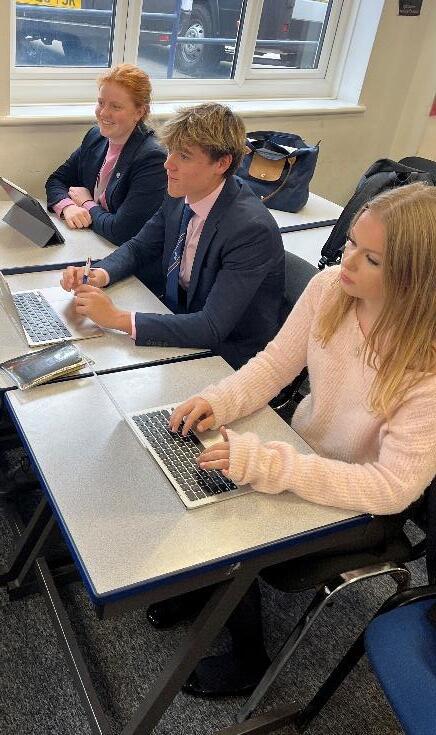
Suggested Entry Requirements
A minimum of Grade 7 at GCSE in the language you wish to study and to be able to express your ideas and opinions in both speaking and writing in relation to the range of topics studied.
Overview
French – Mr Higbee (higbeed@ashfordschool.co.uk)
• The changing nature of family
• The 'cyber-society'
• The place of voluntary work
• Positive features of a diverse society
• Life for the marginalised
• How criminals are treated
German – Mr Fritsch (fritschs@ashfordschool.co.uk)
• Social issues and trends in the Germanspeaking society
• Multiculturalism in the German-speaking society
• Artistic culture in the German-speaking society
• Aspects of political life in the Germanspeaking society
Spanish – Mrs Calver (calverc@ashfordschool.co.uk)
• Evolution of Spanish society
• Political and artistic culture in the Spanish speaking world
• Immigration and the multicultural society
• Franco’s dictatorship and the transition to democracy.
For all three languages students will study a set text and a set film.
Beyond A Level
Assessments
Examinations
The French and German exam papers follow the same pattern:
Three examinations at the end of the course.
Paper 1 (listening, reading and writing) is worth 50% of the A Level (2.5 hrs)
Paper 2 (writing) is worth 20% of the A Level (2 hrs).
Paper 3 (speaking) is worth 30% of the A Level (21-23 mins).
Spanish:
Three examinations at the end of the course.
Paper 1 (listening, reading and writing) is worth 40% of the A Level (2 hrs)
Paper 2 (writing) is worth 30% of the A Level (2 hrs 40 mins).
Paper 3 (speaking) is worth 30% of the A Level (21-23 mins).
For further information, please contact:
Mr Higbee
Head of MFL higbeed@ashfordschool.co.uk
Some students go on to do degree courses in languages, often using the skills they have learnt at school to take up a new language like Arabic, Russian or Mandarin. Others pursue Higher Education courses in a vast range of subjects with a language option alongside their main specialism. Even if you choose not to continue with your language after school, with the increasing possibilities of global job mobility, an advanced knowledge of French, German or Spanish could be an asset to students of all subjects. If your future plans might involve living, working or travelling abroad, a language course in the Sixth Form is an excellent step to achieving your future goals.
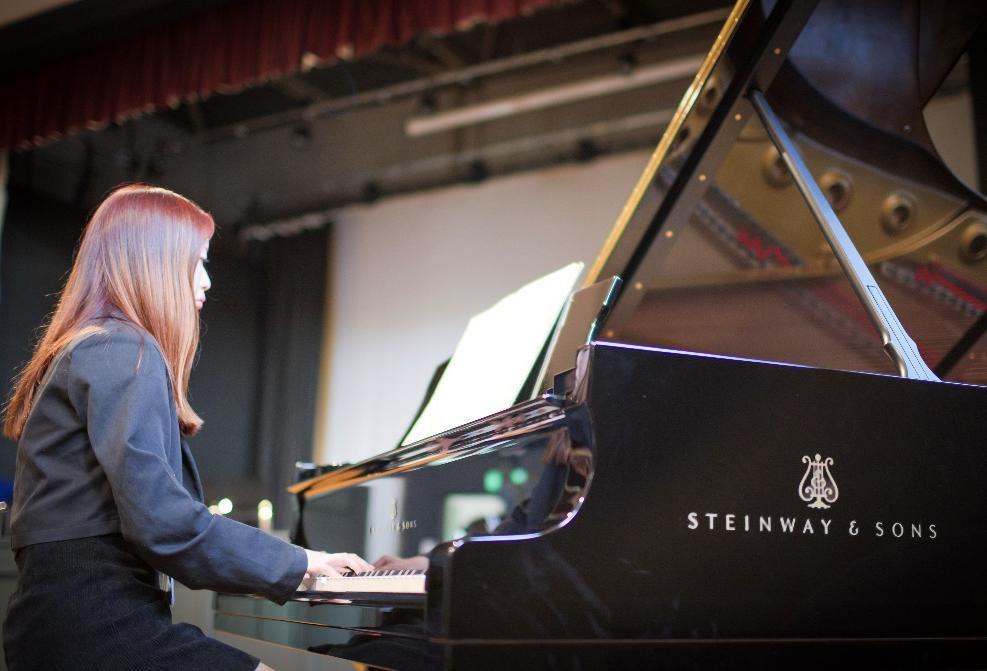
Why study Music at Ashford School?
Taking the Music A Level course is a necessity for those hoping to continue with Music into higher education and/or as a career. It is equally appropriate and fulfilling for those who simply enjoy music and have an aptitude for it.
Lessons
It is a requirement that practical lessons continue on at least one instrument/voice for the duration of the course.
Computer Software
Sibelius and GarageBand software is available in school for composing, but students may find it helpful to purchase their own version for home use. There is a discounted student version of Sibelius available for homework. This is not mandatory, but helps a student with coursework between sessions.
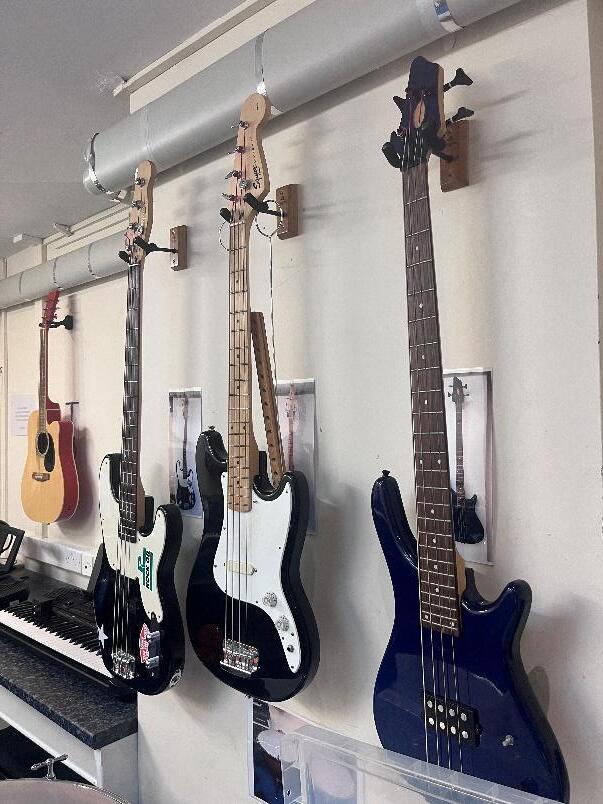
Suggested Entry Requirements
There is a prerequisite that students have attained Grade 5/6 (Associated Board, Trinity, MTB or equivalent) in their instrument or voice, or have at least five/six years of study. Grade 6 at GCSE Music is a recommended minimum*. By the end of Year 13 it is expected that students will have attained a level of performance at Grade 7 or higher, ideally Grade 8 for the very highest marks in performance. Please discuss this with Music staff if further clarification is needed.
Overview
Following on from the GCSE course, and in a very similar assessment format, A Level Music focuses on developing analytical skills through the study of an even wider range of music, performing, composing and the study of harmony and counterpoint. Students will experience the three main musical disciplines of Performing, Composing and Listening/Appraisal. Students will develop performance skills, compose music and learn about harmony, whilst also building up aural and analytical skills by studying pieces of music in a variety of different styles. Much of the study requires secure knowledge of stave notation and basic music theory, and involves extensive work from the Anthology of Music scores.
Students are encouraged to use music-related ICT and are expected to be involved in the many musical co-curricular activities of the School. This is invaluable for the ensemble performance element. Individual instrumental teachers offer valuable support for the Performing component of the course.

Assessments
Written Examinations
One examination at the end of Year 13 (2hrs 10) worth 40% of the A Level.
Coursework
Coursework consists of performing and composing elements, each worth 30% of the A Level.
*Students without this prerequisite need a recommendation from their instrumental/vocal teacher. An interest in a wide variety of music, as well as an ability to compose and write about music (to GCSE standard) is seen as an important foundation. Students from overseas can send in a link to a short video recording demonstrating their performing skills, together with a piece of their own composition work.
For further information, please contact:
Mrs Simes Director of Music
simesl@ashfordschool.co.uk
AQA A Level Art and Design (Photography) 7206

Why study Photography at Ashford School?
The aim of the course is to develop an understanding of the nature of visual thinking and its appropriate language and its potential in 21st century creativity. As such, Photography is widely recognised as valuable preparation if you are considering a career in the creative industries (e.g. media, film, photojournalism, fashion, illustration, or game design). It will also enrich your appreciation of the world around you. The course includes the study of genres within Photography such as portraiture, landscape, documentary/photojournalism and still life but you will also have the opportunity to explore traditional and experimental dark room techniques and processes, new media processes such as video, animation, photographic installation and sound manipulation using industry standard software.
Suggested Entry Requirements
Students do not need any specific entry requirements for A Level Photography. However, a GCSE qualification in an Art or Design related course or D&T would set them in good stead as they will have had previous experience of digital platforms such as Photoshop.
Overview
In Year 12 you will explore a variety of practical workshops including traditional film camera control and film processing, dark room techniques, handmade negatives, pin hole camera, SLR camera control, studio photography, animation, moving image, experimental imagery, multimedia, Photoshop and other digital applications.
In Year 13 you will build upon the skills that you have learned in Year 12 to research, plan and develop a unit of coursework which will be assessed at the end of the academic year. In this time you will produce final pieces in at least two of the specialisms explored in Year 12. You will also produce a Personal Study which is an academic essay of between 1000 and 3000 words based upon your chosen area of study.
In February of Year 13 you will receive your examination question paper which you will use as the basis for your second unit of work for a 15-hour exam set over 3 days. The exam is approximately 8 weeks after receipt of the exam paper.
Assessments
Examinations
One practical examination at the end of the course (15 hrs over 3 days), worth 40% of the A Level.
Coursework
Coursework takes place throughout Year 12 and Year 13 and is worth 60% of the A Level.
During your course you will be advised on how to build a portfolio of artwork suitable for entry to a one-year predegree Foundation Diploma course in Art and Design or a University Degree.
For further information, please contact:
Mrs Rayner Head of Art raynern@ashfordschool.co.uk
Beyond A Level
The degree courses and careers associated with the Photography A Level are substantial and varied. A selected list would include CGI and special effects, media, film, TV, entertainment industries, video direction, picture editing, journalism and photojournalism, fashion photography, product and studio photography, animation, games design, game art (computer games), alternative media, scenography, industrial design, theatre design, graphic design, product design, film-based photography, digital photography, film and video production, illustration, typography, installation and interactive media. Students are free to develop their own interests within this course.
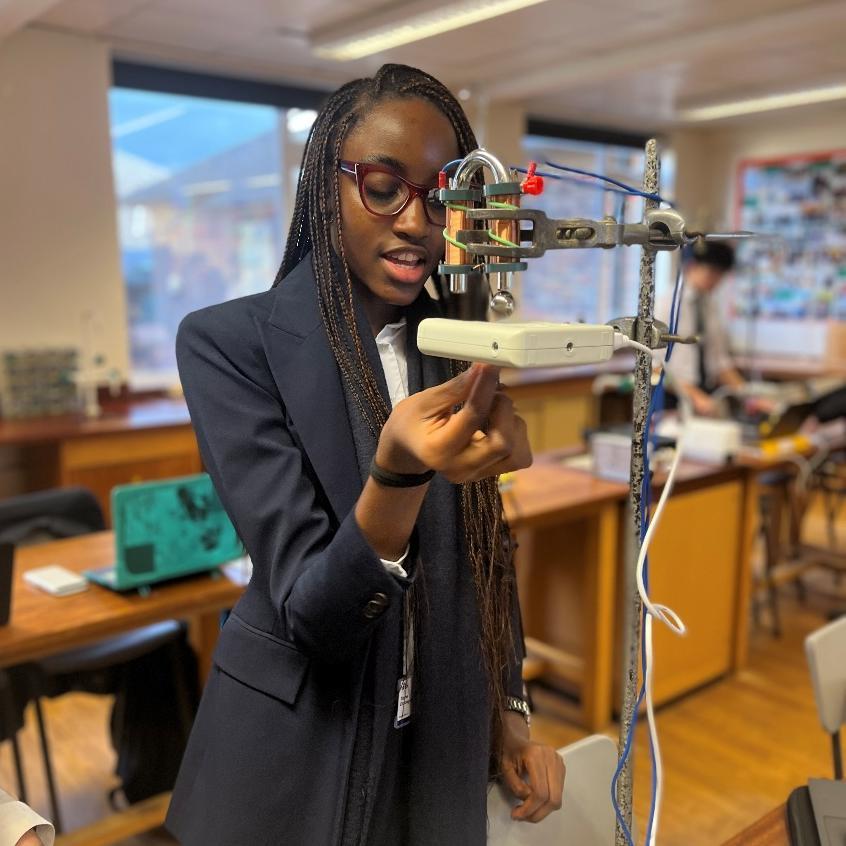
Why study Physics at Ashford School?
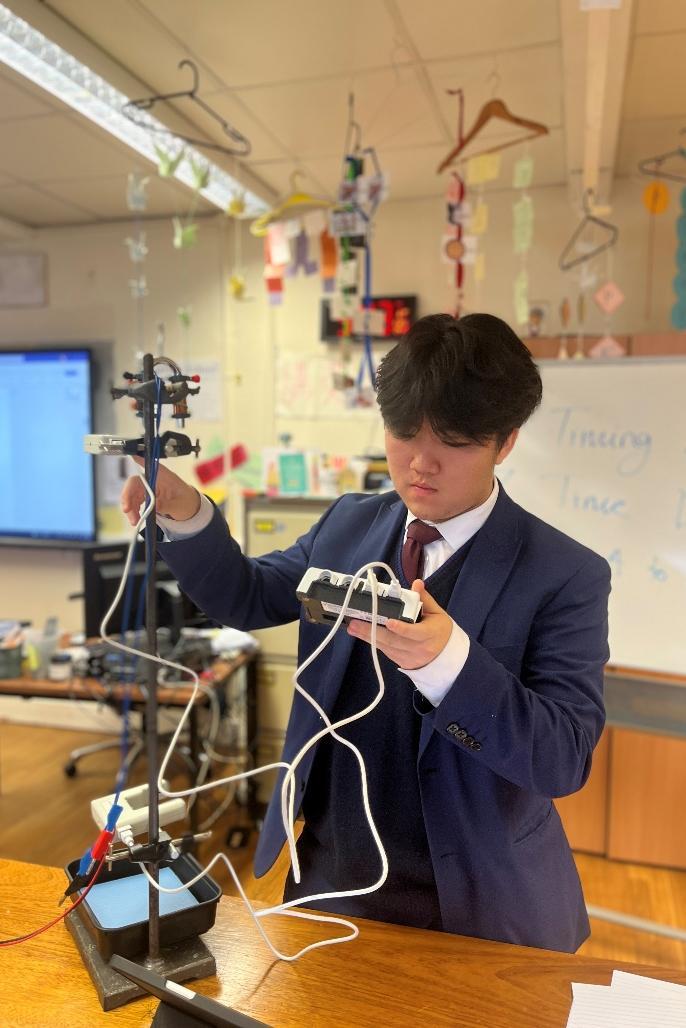
The Physics Department is a highly dynamic and enthusiastic department, with specialist Physics teachers who have guided students to numerous academic successes such as: study at Oxford, Cambridge, Imperial College and many other Russell Group universities; Physics Olympiad competitions; CREST Awards and EPQs. Students of all abilities are supported and challenged, helping them to develop a lifelong passion for the subject.
Applications of physics can be found in most of the inventions of our society. The concepts, laws and models of physics help us to describe and understand the world around us. They are also fundamental to an understanding of how every physical system works. They extend to every scale, from the infinitesimal particle zoo of the subatomic, through nanotechnology to the very universe itself. This is reflected in the content of the course.
Suggested Entry Requirements
Level 7 (or higher) in GCSE Physics or Level 8 in the Physics modules of GCSE Combined Science. Due to the extensive mathematical content of the course, a good understanding of Mathematics is very important: we recommend level 7 or above in GCSE Mathematics.
Overview
A Level Physics is a challenging but rewarding subject. Students will study some of the topics they covered at GCSE in more depth, as well as new ones such as particle physics, quantum phenomena and special relativity.
At least 40% of the marks in the assessments will require the use of mathematical skills. While not absolutely necessary, it is helpful for students wishing to study A Level Physics to also study A Level Mathematics.
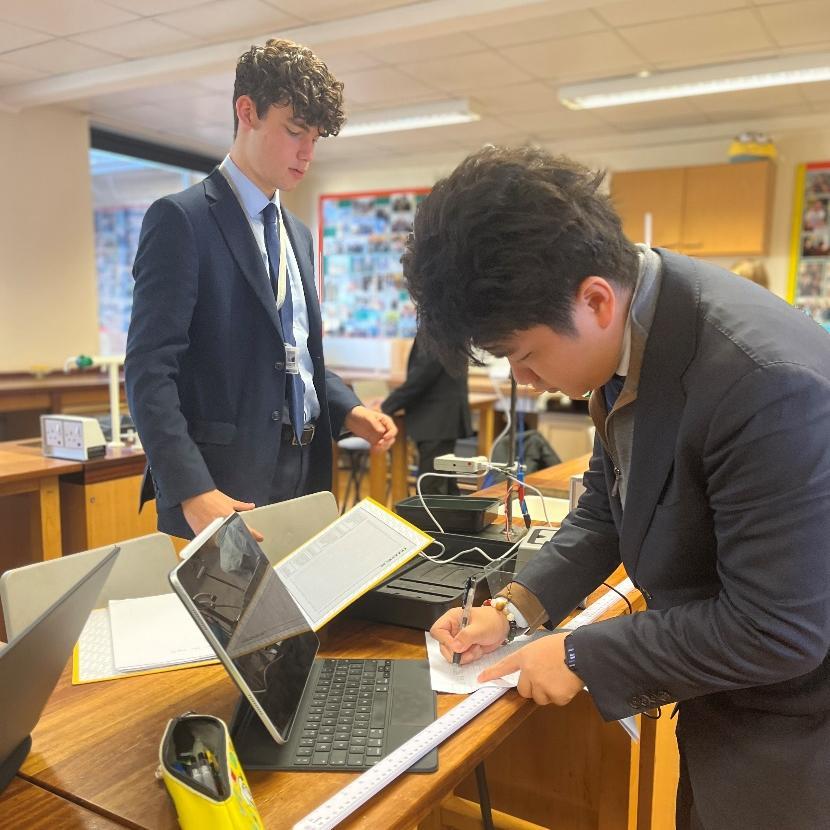
Beyond A Level
Assessments
Examinations
Three examinations at the end of the course (2 hrs each).
Paper 1 is worth 34% of the A Level. Paper 2 is worth 34% of the A Level. Paper 3 is worth 32% of the A Level.
Practical work lies at the heart of the sciences and this course provides numerous opportunities to use practical experiences to link theory to reality and equip students with essential practical skills. Students who satisfy the practical requirements of the course will be awarded a separate “Practical Endorsement” alongside their A Level grade.
For further information, please contact:
Ms Martin Head of Physics martini@ashfordschool.co.uk
Physics is a requirement for all university Physics and Engineering courses. Physics at A Level is also useful for those planning to read Chemistry, Mathematics, Geography, Architecture and Medicine, as well as certain degrees in the Life Sciences and the Environmental Sciences.
There is a multitude of careers that can be followed based on a background in Physics. These include those in the physical and other sciences, the scientific civil service, engineering, meteorology, environmental physics as well as careers in communications, computing and industry. Many graduates find their skills are valued in a range of other careers, including city jobs in the financial sector such as banking, accountancy and investment.

Why study Politics at Ashford School?
In one way or another, most aspects of most people’s lives are shaped by politics. From elections and involvement in wars to the price of a pint of milk, most things we see in newspapers or experience in our day-to-day lives are products of political decisions.
The study of Politics helps to establish a greater understanding of many of the issues facing the governments and economists of today, and those impacting upon students’ daily lives. This subject also develops the ability to communicate complex ideas and formulate clear arguments by deploying a range of theoretical concepts and practical examples.
Suggested Entry Requirements
Assessment is via written external examinations containing essay questions and structured questions, some of which relate to specific source material. It is therefore important that you are well qualified in English Language (GCSE Grade 6 or higher).
Experience shows that those with a GCSE Grade 6 or above in History, also tend to achieve well in A Level Politics.
Overview
The course covers the main features of the UK government and politics, as well as providing the opportunity to study these matters in a global context.
Key areas covered on the UK Politics unit include democracy, electoral systems and voting behaviour, the relationship between government and parliament, and the principles underpinning the main political parties. You will develop a sound critical understanding of how politics in the UK operates. For instance, while Britain is normally seen as a thriving democracy, students are asked to challenge this assumption.
Key areas covered on the UK Government unit include the role of the Prime Minister, the Executive and Parliament, and the relationship between these branches. You will develop an understanding of where power lies within the UK Government. This unit also exposes students to political ideologies less intrinsically tied to specific political parties than those covered in the UK Politics unit, such as anarchism, nationalism and ecologism.
The third unit will expose students to global politics, giving them the opportunity to study the impact of globalisation on national sovereignty. It will also give them an opportunity to analyse recent political developments around the world through the prism of key international theories.
Assessments
Examinations
Three examinations at the end of the course (2 hrs each) each worth 33.3% of the A Level.

For further information, please contact:
Dr Quinton Head of Humanities Faculty quintone@ashfordschool.co.uk
A Level
A Level Politics is a rigorous and versatile qualification which demonstrates to universities and employers the valuable abilities to express ideas clearly, to make links between strands of thought, and to develop sophisticated evaluations. A good grade in Politics is seen as an indication of an applicant’s intellect, ability to work hard, and understand and critically assess the world around them. Politics can lead to all kinds of possible careers including those within law, media, banking, advertising, journalism, social work, teaching and many other professions.

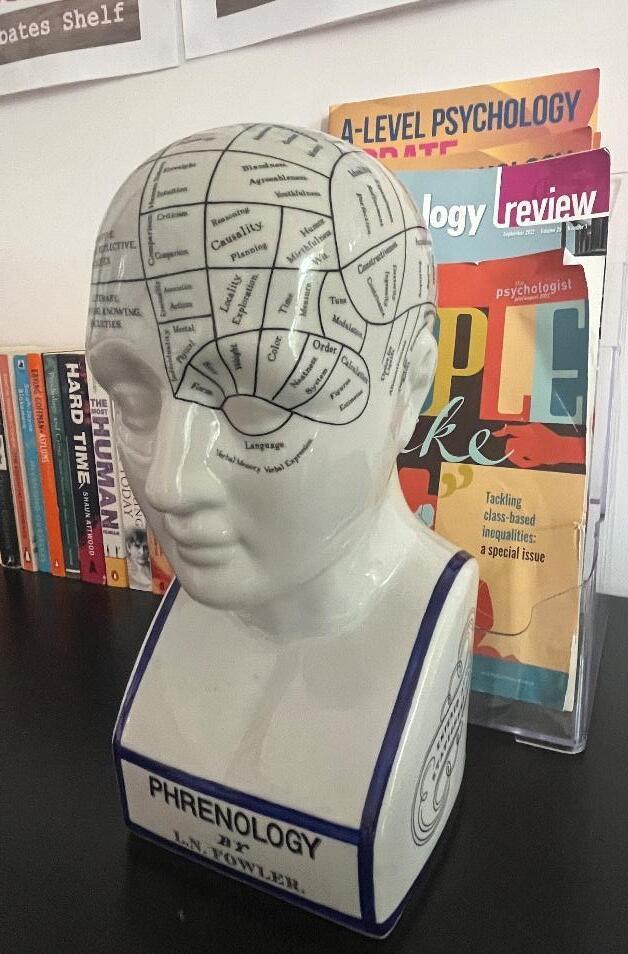
Why study Psychology at Ashford School?
The Psychology Department explores psychological theories, research and concepts to the highest standard and is committed to preparing students for further study and the world of work in terms of their approach to learning, application and evaluation skills which are developed and actively encouraging independence in the learning process. Psychology students are encouraged to read journal articles, watch relevant documentaries, engage in lectures and webinars and enjoy external speaker visits as well as a visit the Psychology Department at the University of Kent to explore what studying Psychology would be like at a tertiary level. This provides our Psychology students with a wealth of experience and knowledge to equip them fully at A Level and beyond.
Psychology, the science of human mind and behaviour, is an exciting and popular option for any student interested in why people behave the way they do. This course has been designed to help students see the implications of Psychology for everyday life and to reflect on their own behaviour and experiences. Any student thinking about working with people or entering the “caring professions” will find that embarking on A Level Psychology is both an interesting and appropriate start to their journey.
Suggested Entry Requirements
Although Psychology is classified as a science, students who take this course come from a range of disciplines, and anyone is welcome if they have an interest in human behaviour. Prospective students should aim for at least a Grade 6 in English Language at GCSE and at least a Grade 6 in Mathematics. There is a statistics component and 10% of the marks awarded are on mathematical ability. Students should be able to express themselves fluently in writing and be willing to engage in both critical and creative thinking.
Overview
In Year 12 the course first looks at the range of methods used to gather evidence and approaches which underpin many of the explanations of behaviour we study. We investigate topics such as social influence, looking at why we obey and conform, models of memory and explanations of forgetting, explanations and treatments of disorders such as phobias and OCD, to name a few topic areas. In Year 13, we focus on the option units which are forensics, schizophrenia and gender. The course covers a wide variety of areas of interest such as the diagnosis of mental illness, explanations and treatments of schizophrenia, how we develop gender identity and how we explain and deal with offending behaviour.
As in any A Level subject, students are expected to take responsibility for their learning and become increasingly independent. Much time in class is spent in discussion rather than following a textbook, which students will read independently. Psychological terminology is really important and students will have many new terms to learn which they will become confident with over time. Students will also benefit from learning opportunities outside of the classroom, by attending conferences and lectures from outside speakers. Assessment is all exam based with no coursework.
Assessments
Examinations
Three examinations at the end of the course (2 hrs each) each worth 33.3% of the A Level.
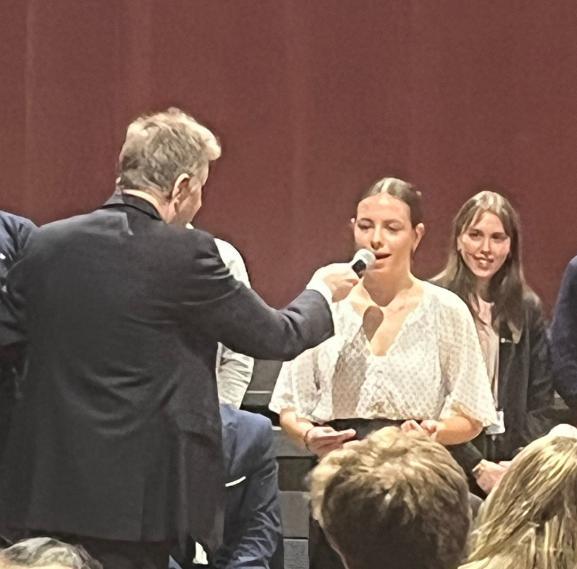
For further information, please contact:
Mrs Kirkham Head of Psychology kirkhams@ashfordschool.co.uk
Beyond A Level
Studying Psychology is very stimulating, and many students go on to study this subject at undergraduate and postgraduate levels. Psychology is a popular subject on its own but can also be combined with criminology, sociology and philosophy, to name but a few options. Psychologists are currently working in such diverse fields as education, human resources, the NHS, the prison service, the police force, marketing, counselling, advertising and social work. The British Psychological Society website has plenty of information about careers related to Psychology.
Philosophy, Theology and Ethics (PTE)
OCR A Level Religious Studies H573

Why study Philosophy at Ashford School?
The Religious Studies Department wants to encourage students to engage with some of the biggest worldview questions and to analyse the beliefs which underpin our society. Students will have a chance to discuss ideas with prominent modern philosophers at conferences, or talks delivered to the students in school from leading academics. Rigorous and passionate teaching allows for students to get the most from the subject.
The course will develop your ability to explore difficult concepts in a rational manner and is available to anyone who wants to explore some of the ‘big questions’ in life – can we trust the information we gain from our senses? Is belief in the soul and life after death rational? Do you have to be religious to do the right thing? Should everyone have the right to die? What do we mean by human nature? How do people gain knowledge of God? Philosophers and theologians have been debating these issues for millennia, and if you would like to join the ongoing search for the answers to these questions, this might just be the A Level for you.
Suggested Entry Requirements
It is not necessary that you have studied RS at GCSE, and you do not need to have a religious leaning. It is strongly recommended to have achieved GCSEs at Grade 6 or higher in English Language and English Literature, as well as Grade 5 or above in Mathematics, and if taken, a Grade 6 or above in Religious Studies. You must have an inquisitive nature, love asking questions and always push for answers. With this desire to know, or to find out, the course will definitely engage you.
Overview
In Year 12, you will begin your philosophical quest with a foundation of Ancient Greek thought that focuses on the work of Plato and Aristotle. This will then enable you to access arguments for the existence of God, the problem of evil, and the debate on the soul, mind and body in a coherent and logical manner. In Ethics, you will explore theories such as utilitarianism and Kantian ethics, as well as applying them to euthanasia and business ethics. In Theology, you will study topics such as Augustine’s teaching on human nature, as well as death and the afterlife. You will consider the different moral principles that exist in Christianity, and how these are put into action.
In Year 13 you will explore the complex philosophical issues behind religious language and the nature of God. In Ethics, you will learn about the language used in ethics, views on the conscience, and applying ethical theories to issues in sexual ethics. In Theology you will consider the impact of pluralism, gender and secularism on Christian thought and practice.
Assessments
Examinations
Three examinations at the end of the course (2 hrs each) each worth 33.3% of the A Level.
For further information, please contact:
Mr Charman
Head of Religious Studies charmanl@ashfordschool.co.uk
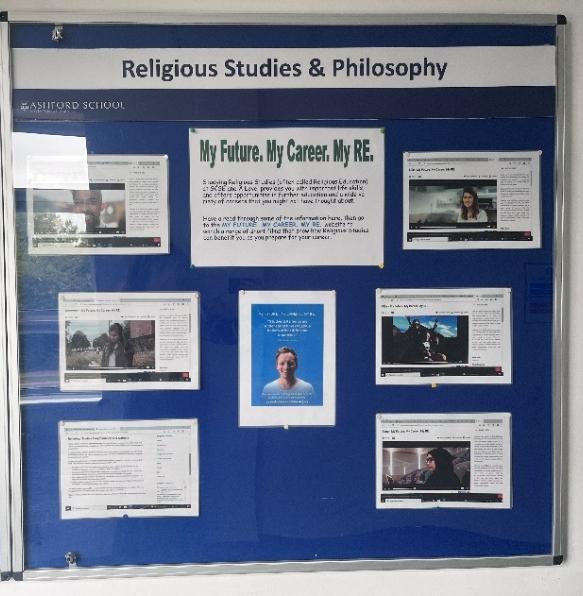
Beyond A Level
Studying Religious Studies: Philosophy, Theology and Ethics is of value in and of itself (because the subject is so interesting!), and, because of the transferable skills students acquire after completing the A Level, the course is valuable as a basis to study just about any academic subject at degree level. The skills of critical analysis and evaluation have value across the spectrum of degree courses. The emphasis on coherent, logical and structured essays will be of great value for university. Many students have found A Level PTE particularly helpful in careers related to law, journalism, business and politics. Employers are always on the look-out for people who have the skills of thinking ‘outside the box’ and being able to deconstruct a complex problem into logical steps.
Sport: A Level
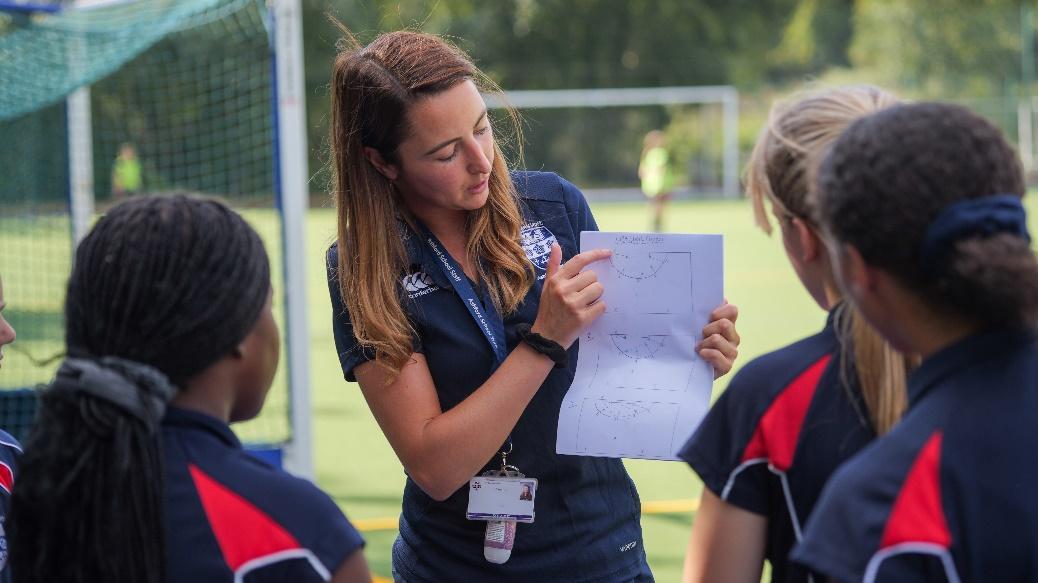
Why study Sport at Ashford School?
This practical and engaging course has been designed to allow learners to study Physical Education (PE) in an academic setting. They will learn how to critically analyse and evaluate their physical performance and apply their experience of practical activity to developing their knowledge and understanding of the subject.
The examined components provide the knowledge and understanding which underpin the non-exam assessment (NEA).
The NEA within this specification allows learners to explore an activity, chosen from a wide variety of sporting activities, in detail as a performer or coach. Learners will also analyse and evaluate performance in a chosen activity as part of their NEA.
This specification will create confident, independent thinkers and effective decision makers who can operate effectively as individuals or as part of a team – all skills that will enable them to stand out and effectively promote themselves as they progress through life.
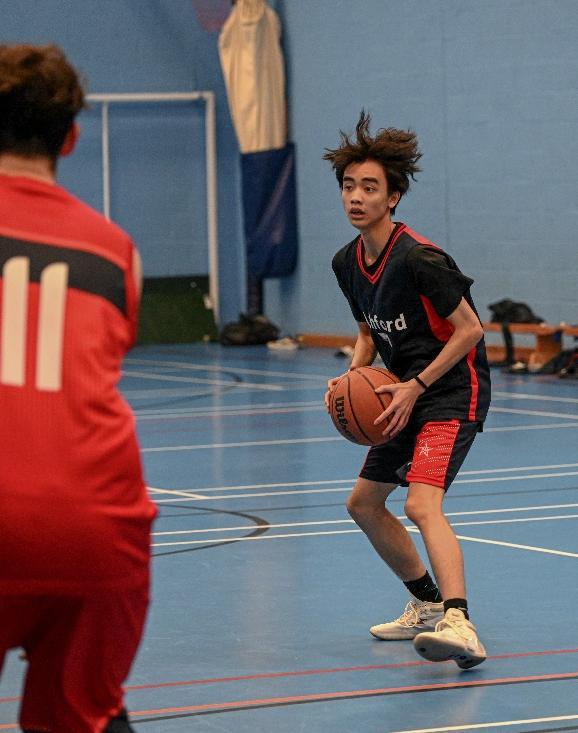
Suggested Entry Requirements
Pupils who have studied GCSE PE should have achieved a grade 6 or above.
If GCSE PE has not been studied, then a strong performance in GCSE Sciences with grades of 6-7 would also allow for access to the A Level course.
In addition, it is advantageous for students to be doing their chosen sport outside of school.
Overview
In addition to the taught unit content, a number of extra opportunities are afforded to the students who take this course.
We run a bi-annual trip to the Sports Lab at Canterbury Christ Church University to see first-hand how cutting-edge technology is used to test elite athletes and improve performance, and the pupils themselves are then put through their paces in the lab.
Relevant coaching qualifications and courses are also organised annually, such as Level 1 and 2 coaching awards and both Lifeguarding and First Aid qualifications that the pupils are encouraged to undertake, to expand their knowledge and experience of sports coaching and administration.
We also run the nationally-recognised Sports Leaders Level 3 Award, that can provide additional UCAS points, as well as online academic opportunities such as Open University sport science modules and the potential to undertake an EPQ, which also affords additional UCAS points.
Many of our pupils use these qualifications to take on coaching roles both in and out of school.
Assessments
Examinations
Physiological factors affecting performance: 2 hour exam, 30% of total A Level
Psychological factors affecting performance: 1 hour exam, 20% of total A Level
Socio-cultural issues in physical activity and sport: 1 hour exam, 20% of total A Level.
Non-Exam Assessment
Practical Performances: 15% of total A Level. One activity chosen from an approved list assessed in the role of performer or coach
Evaluating and Analysing Performance for Improvement: 15% of total A Level. This NEA consists of observing a live or recorded performance by a peer and then providing an oral response, analysing and evaluating the performance.
For further information, please contact:
Miss Stirling
Head of Academic PE stirlingk@ashfordschool.co.uk
Beyond A Level
A Level Physical education courses lead onto a wide range of degree courses such as Sport & Exercise Science, Sports Studies, Occupational Therapy, Physiotherapy, Nutrition, Psychology, and Sports Business and Leisure Management. In addition, there are career pathways into the professional and amateur sports and careers in the Fitness Industry, such as gym instructing, personal training, and business management and finance.
BTEC Sport
BTEC Level 3 National Extended Certificate in Sport
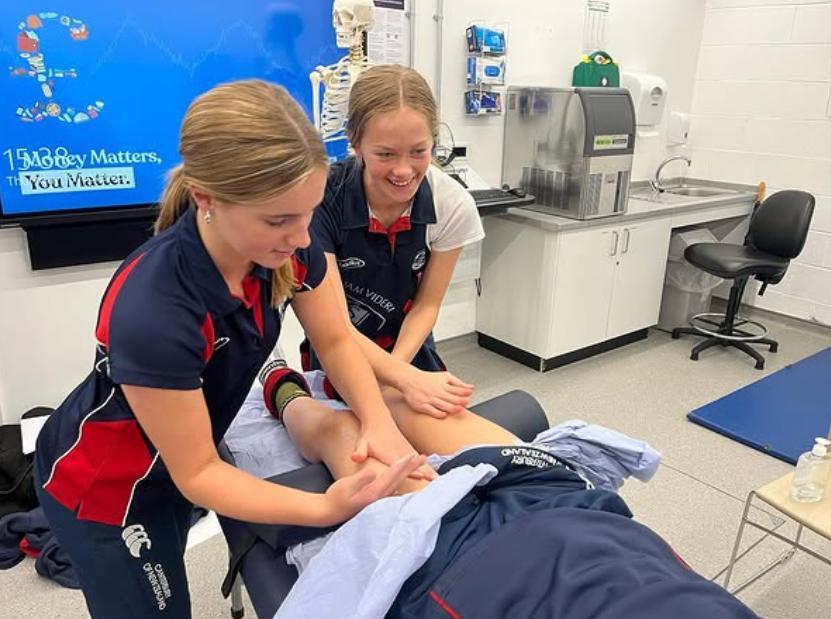
Why study Sport at Ashford School?
BTEC Sport is a flexible modular qualification, and therefore different to A Level subjects that are delivered in a more linear structure. The National Certificate equates to one A level and occupies one block in the timetable
Primarily, the qualification consists of theory-based study and examinations, with practical elements found in some select courses and with an emphasis on 'beyond the classroom possibilities.'
Essays and assignments are structured to reflect real-world projects, reports, and presentations; you will be encouraged to take responsibility for your own learning which will help to build your confidence and independence. The course will improve your interpersonal skills and practical thinking abilities.
During the course you will be prepared for external theory examinations and will be taught appropriate exam methodology and revision skills.

Suggested Entry Requirements
It is advantageous if pupils have studied GCSE PE, but this is not a formal prerequisite.
Overview
This gives you a more diverse and flexible approach to assessment methods, for example: external examinations can be re-sat, and one 'referral' per piece of coursework is allowed, which can be issued to improve internal assignments.
One of the most advantageous elements of the course is all external exams will be completed by the end of year 12 allowing students to manage their time effectively in year 13; as opposed to a single A Level examination at the end of the course.
The internal assessment methods are selected based on your strengths and interests and allow you to actively demonstrate your learning. Examples of assessment methods include interviews, presentations, essays and reports.
Each unit is individually graded and contributes to the final grade, in proportion to the number of Guided Learning Hours (GLH).
The mandatory units students will complete on this course are:
Assessments
Examinations
Extended Certificated: Completed in Year 12
Unit 1: Anatomy & Physiology
Unit 2: Fitness Training & Programming for Health, Sport & Wellbeing Coursework
Extended Certificate: Completed in Year 13
Unit 3: Professional Development in the Sports Industry. Two pieces of coursework make up the unit grade.
Unit 4: Sports leadership. Two pieces of coursework make up the unit grade.
For further information, please contact: Miss Stirling
Head
of Academic PE stirlingk@ashfordschool.co.uk
Both BTEC Sport courses lead onto degree courses in a wide range of Sport & Exercise Science and Sports Studies degrees at universities both home and abroad. The qualification provides the first step to a diverse range of careers including: occupational therapy, physiotherapy, nutritionist. It is a core qualification for individuals with aspirations towards teaching and/or professional sports coaching.
Extended Project Qualification (EPQ)
AQA Level 3 Extended Project Qualification 7993

Why complete the EPQ at Ashford School?
The EPQ allows each student to embark on a largely independent project on a topic of their choice but also includes 10 hours of a taught element. This is a fantastic opportunity for you to take the initiative in your own learning, by studying a topic of your choice. You must plan, research and develop your idea and decide on your finished product, before presenting your findings to an audience.
This experience provides an opportunity for you to extend your abilities beyond your A Level studies, to stand out and prepare for university or your future career. It can also be used to earn extra UCAS points.
Suggested Entry Requirements
There are no entry requirements to complete the EPQ.
Overview
The EPQ encourages creativity and curiosity. A project topic may be directly related to a student's main study programme but should look beyond the specification. A finished product may take the form of a written report, production (e.g. charity event, fashion show or sports event), or an artefact (e.g. piece of art, a computer game or realised design).
Examples of titles:
• Whether modern Economic theory works in Tang Dynasty (especially Lorenz curve).
• How does China’s economic growth affect poverty reduction?
• Rape in Modern India – an analysis of the significance of gender attitudes
• How does infinity inside the Black Hole affect its property?
• How did high status buildings in Andalucia, Spain, evolve during the Muslim inhabitancy 711-1492?
• Can psychopaths be empathetic?
Assessments
Coursework
Normally, work on the EPQ would start in the January of Year 12, with submission in the Spring term of Year 13. The EPQ is an equivalent to an AS Level qualification and awarded the UCAS tariff points accordingly.
For further information, please contact:
Mrs Ndongong
Coordinator and Lead Supervisor ndongongh@ashfordschool.co.uk

English as an Additional Language (EAL)
International English Language Testing System (IELTS)

Why study English as an Additional Language at Ashford School?
The IELTS (International English Language Testing System) course is suitable for international students who wish to study at an English-speaking university and who do not already have an English language qualification acceptable for British or American universities. It is also suitable for international students who have already gained an English language qualification and are seeking to improve their academic English.
Suggested Entry Requirements
There are no entry requirements to study the EAL course.
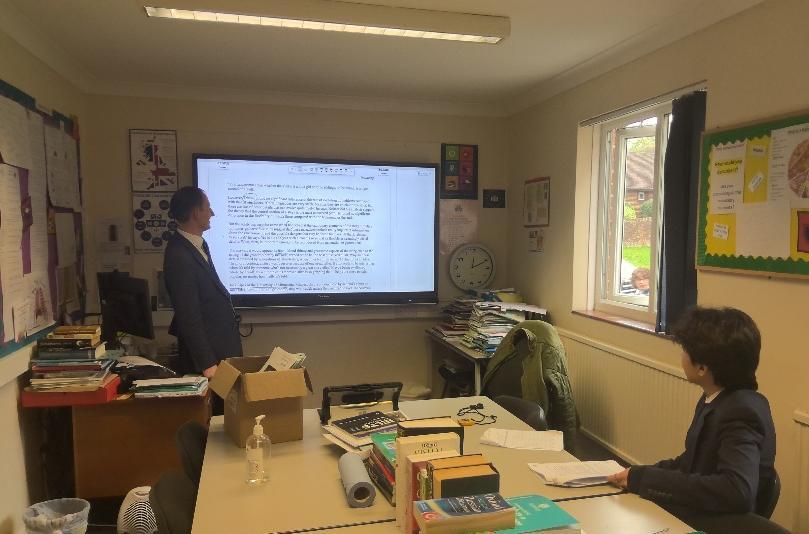
Overview
During this course, we will help you develop your Listening, Reading, Writing, and Speaking skills in order to raise your IELTS scores and improve your chances of gaining access to your university of choice. The EAL department will conduct level assessments and mock exams in order to advise you when it is best for you to take the exam, and we will review your results to help you meet your English language requirements.

Assessments
Examinations
The formal IELTS qualification is assessed in four examinations: Reading, Writing, Listening, and Speaking. These will be examined first in the Spring Term of Year 12 but can be repeated in Year 13 in order to improve your marks.
For further information, please contact:
Miss Dores Head of EAL doresj@ashfordschool.co.uk

